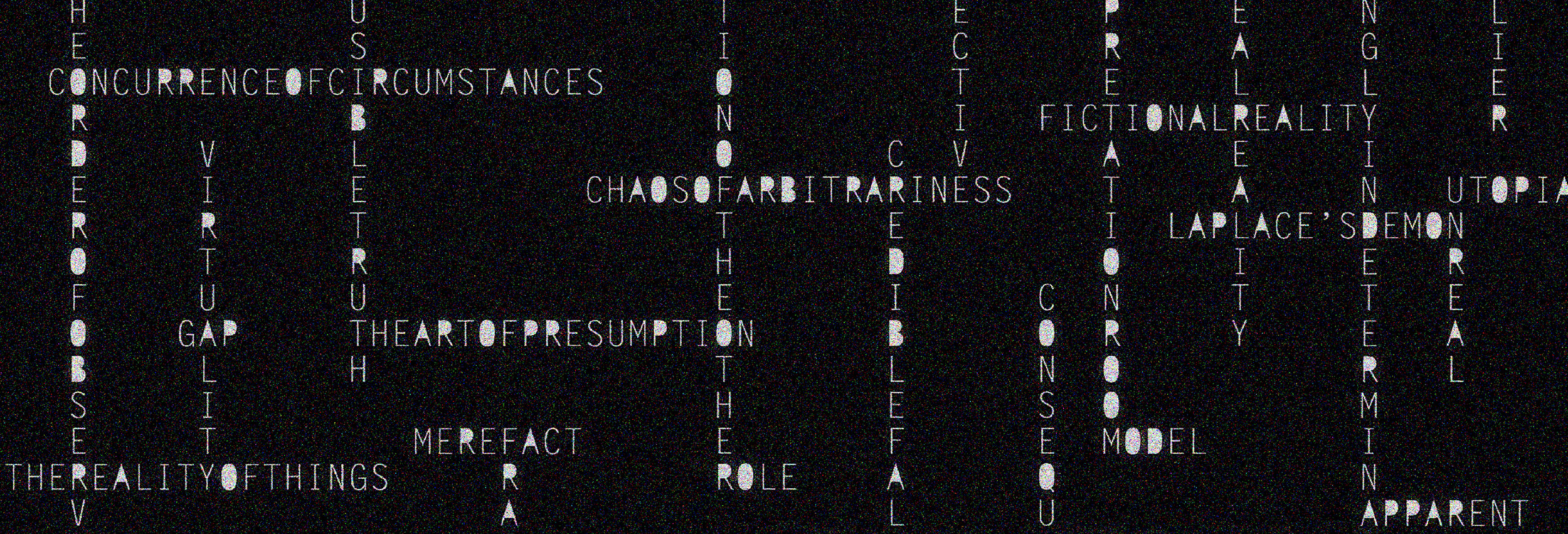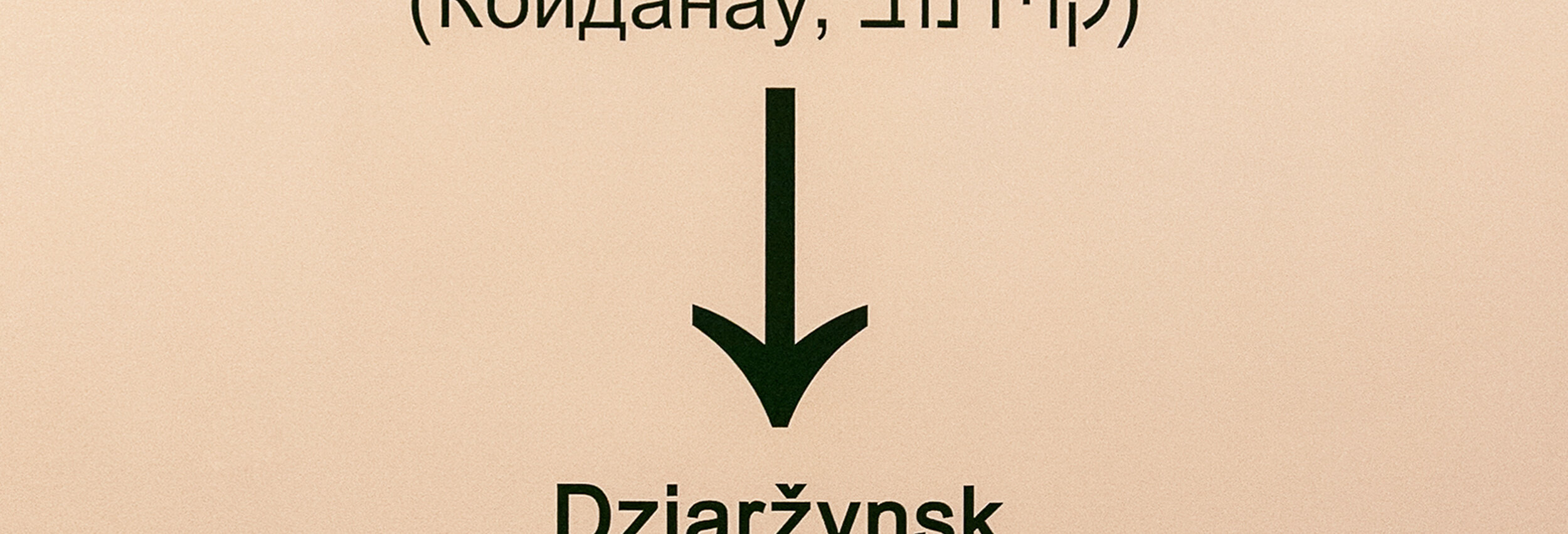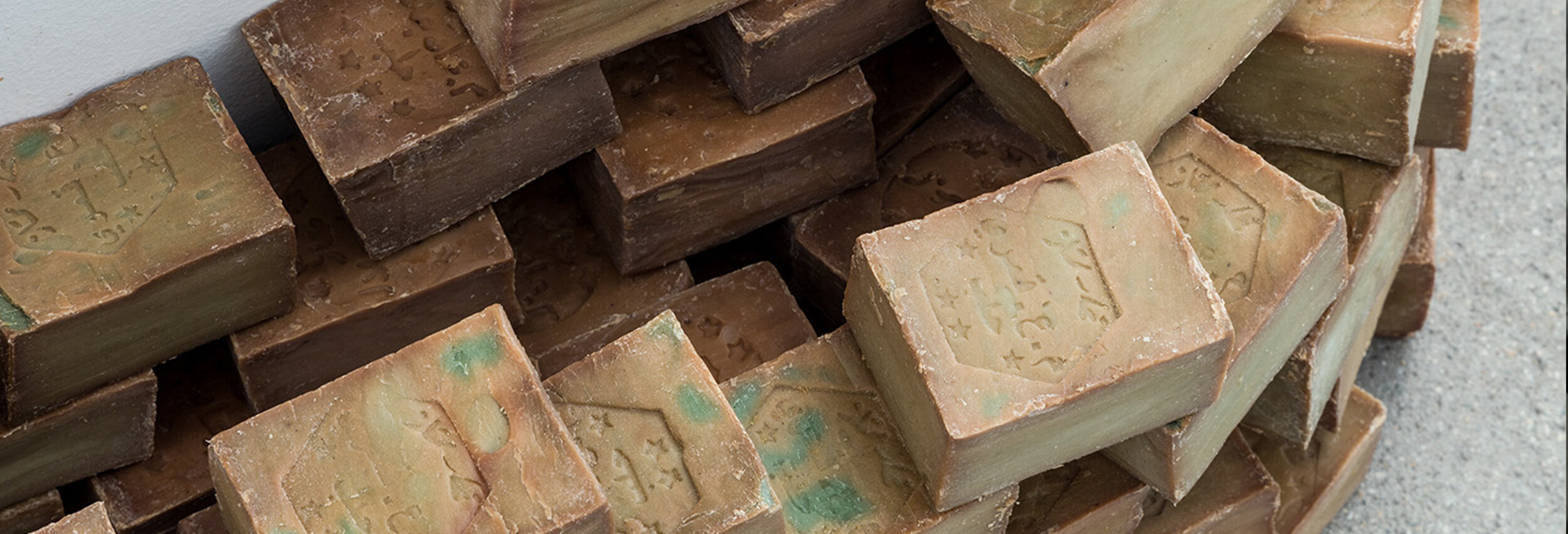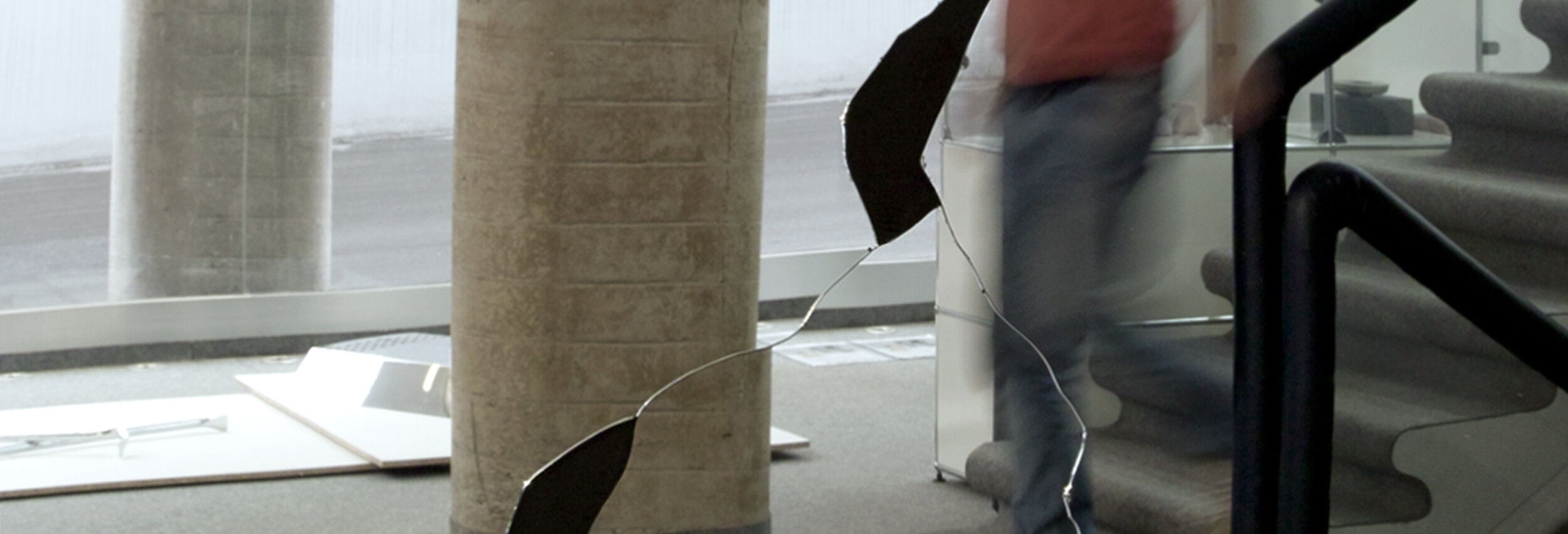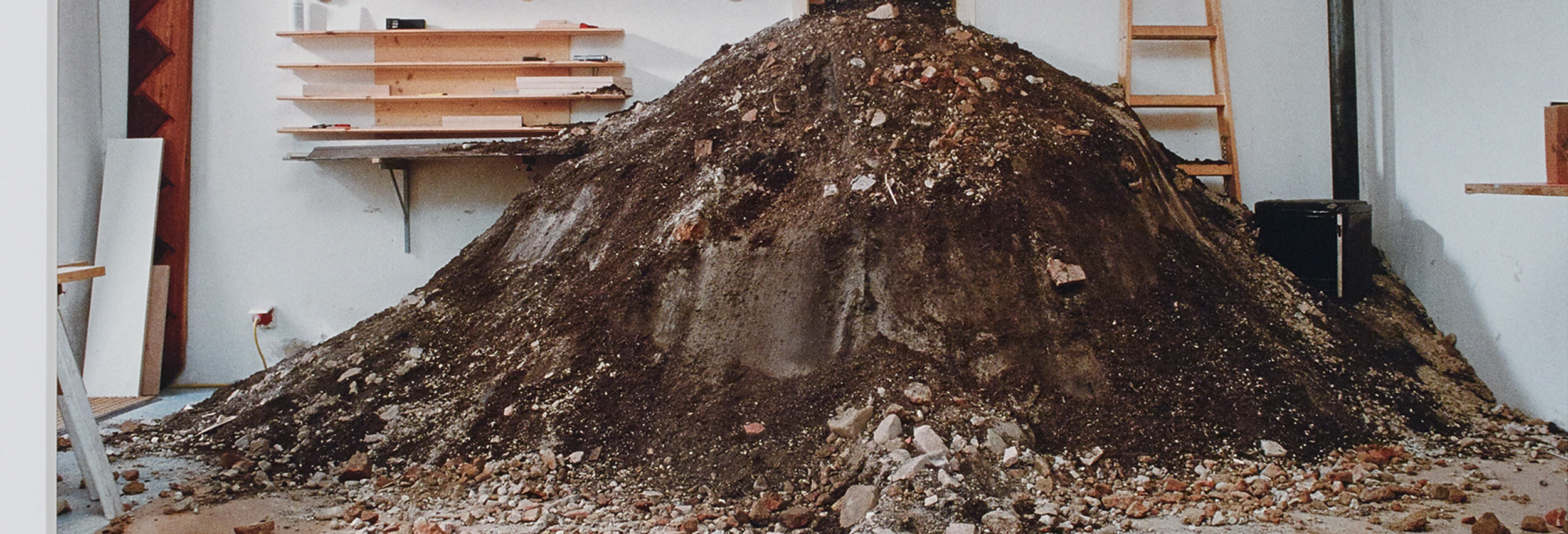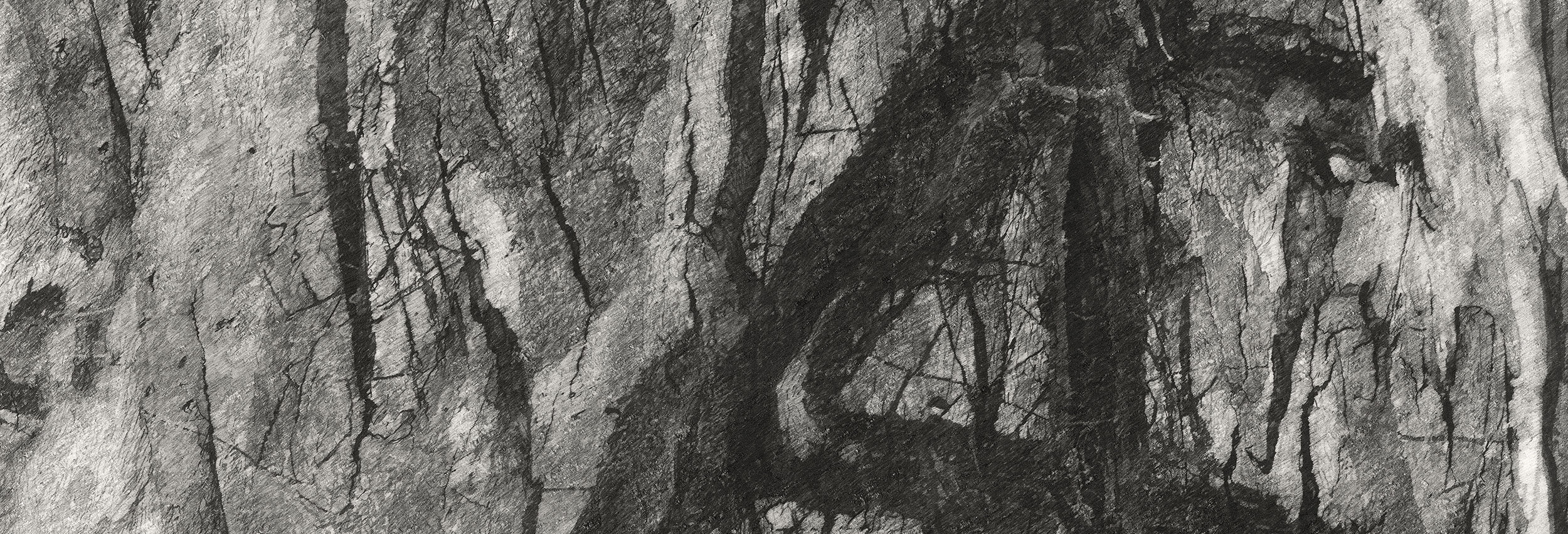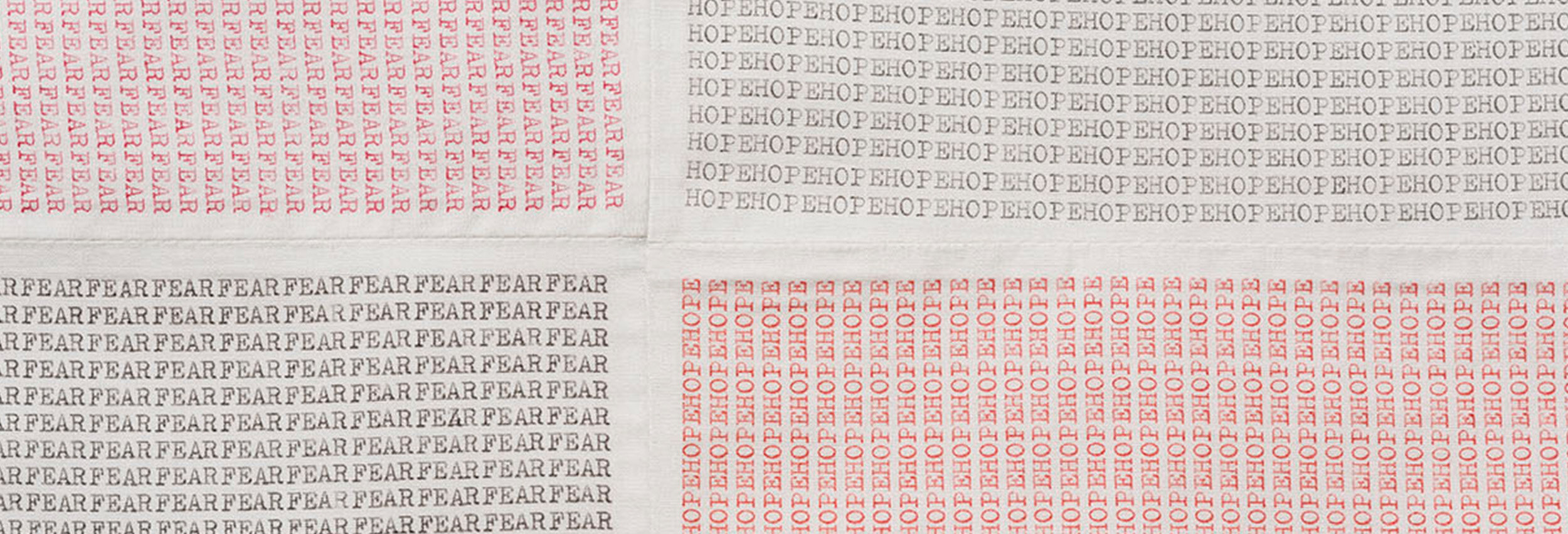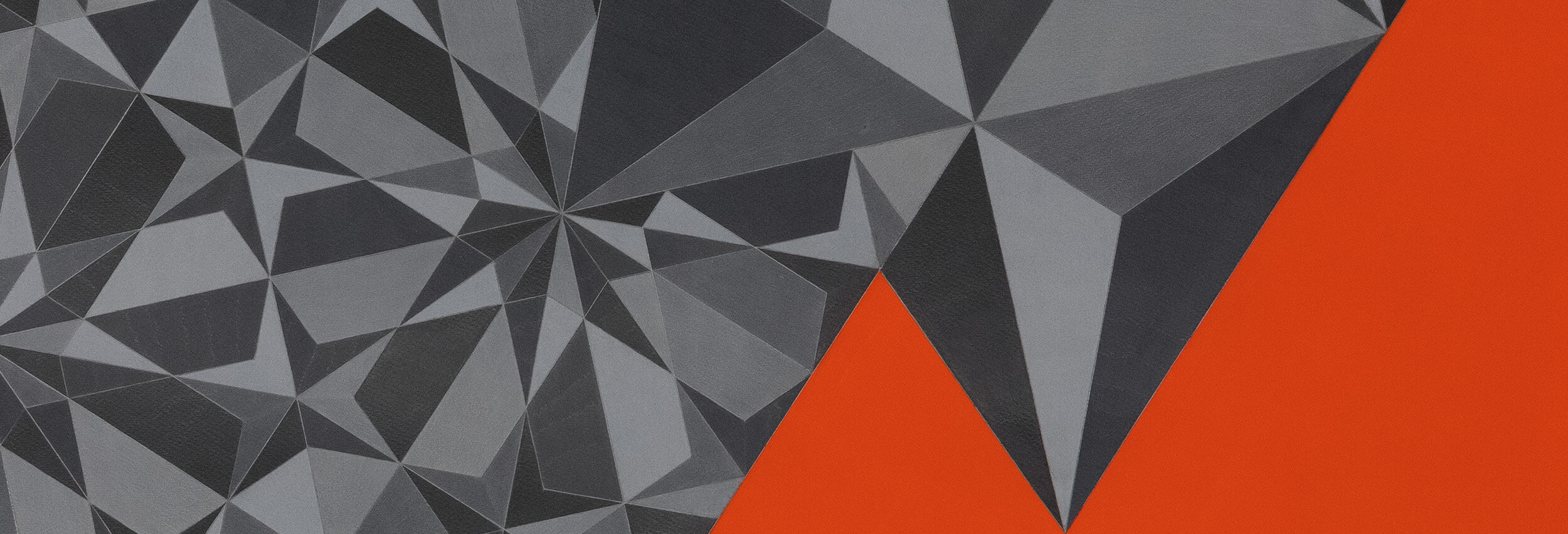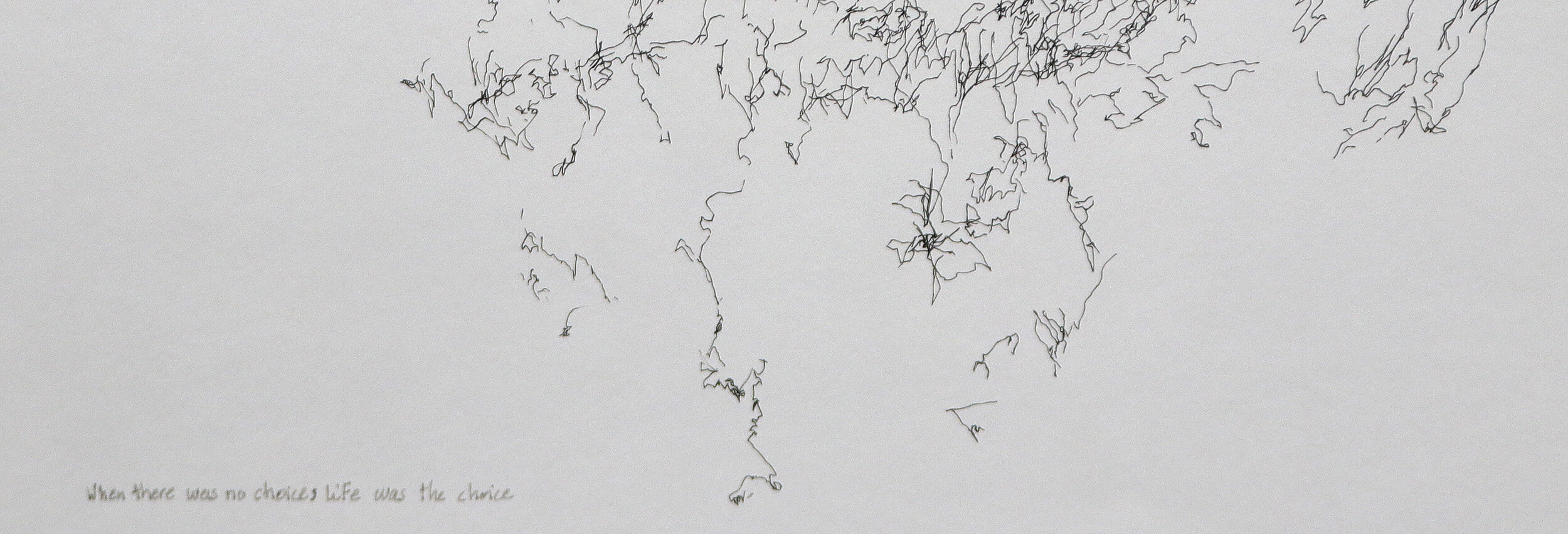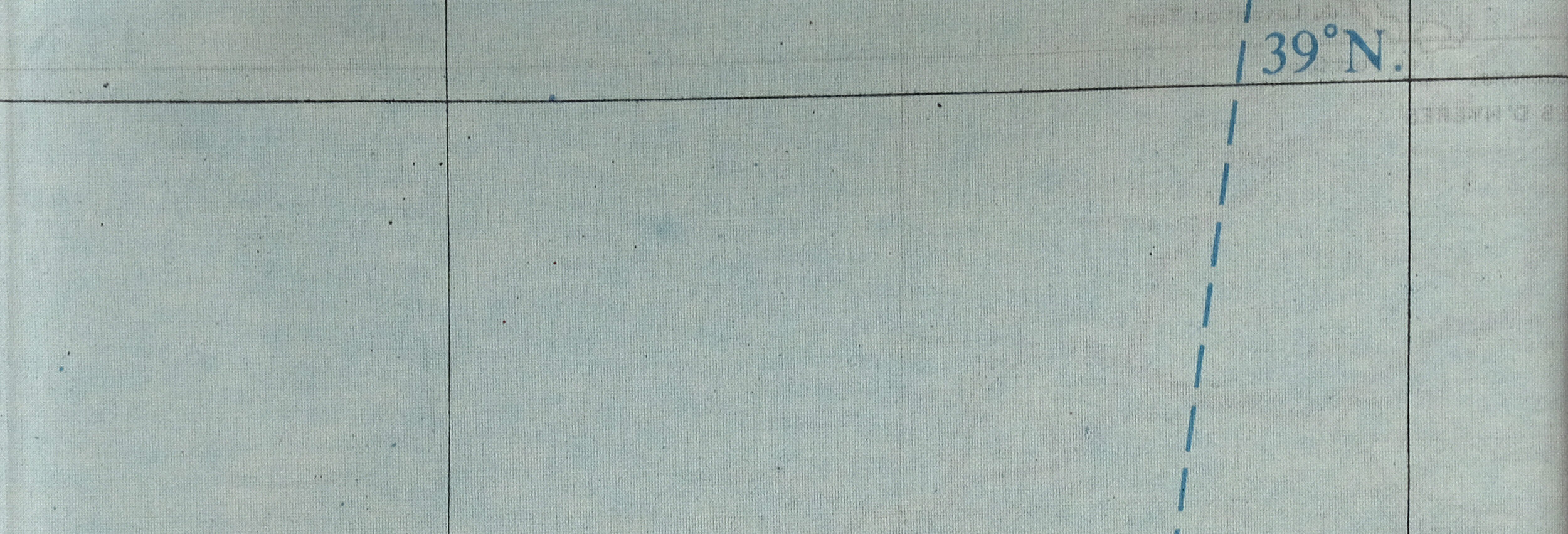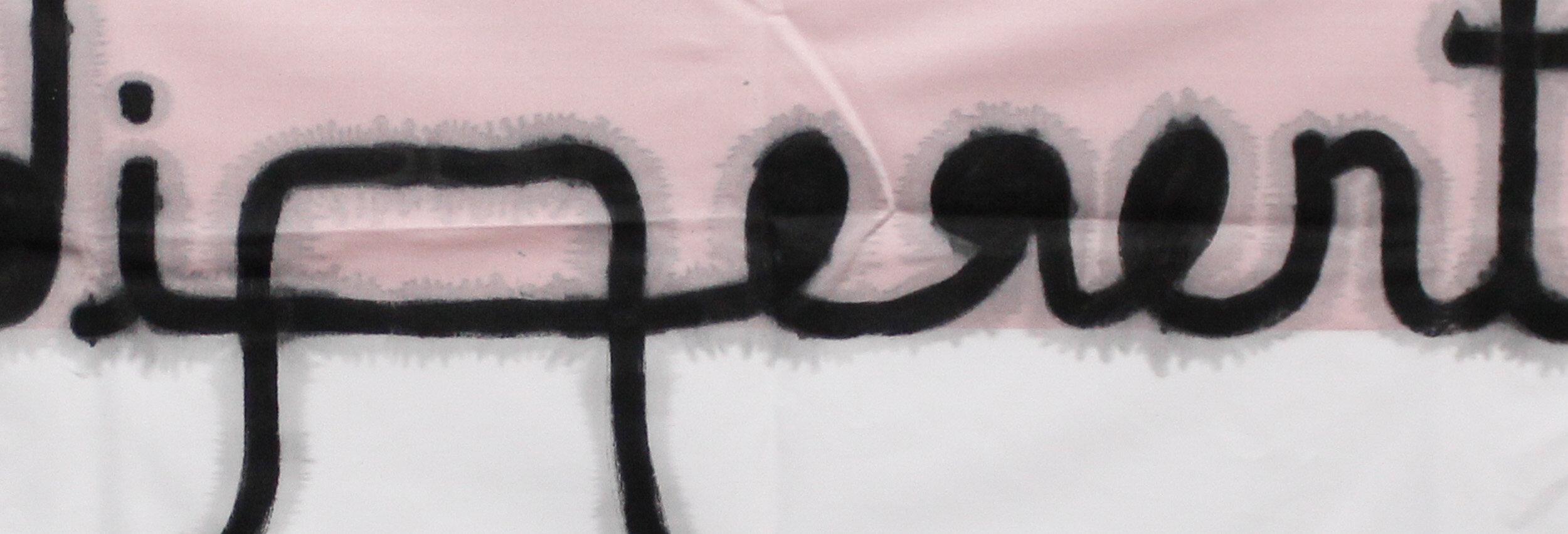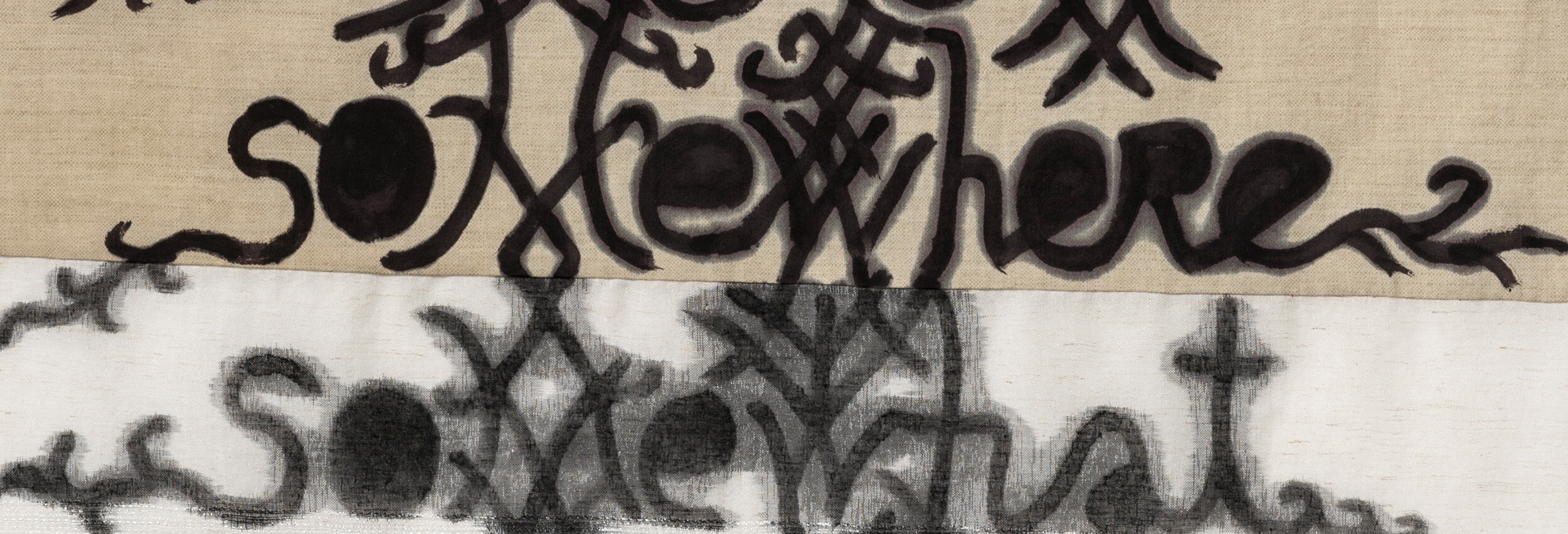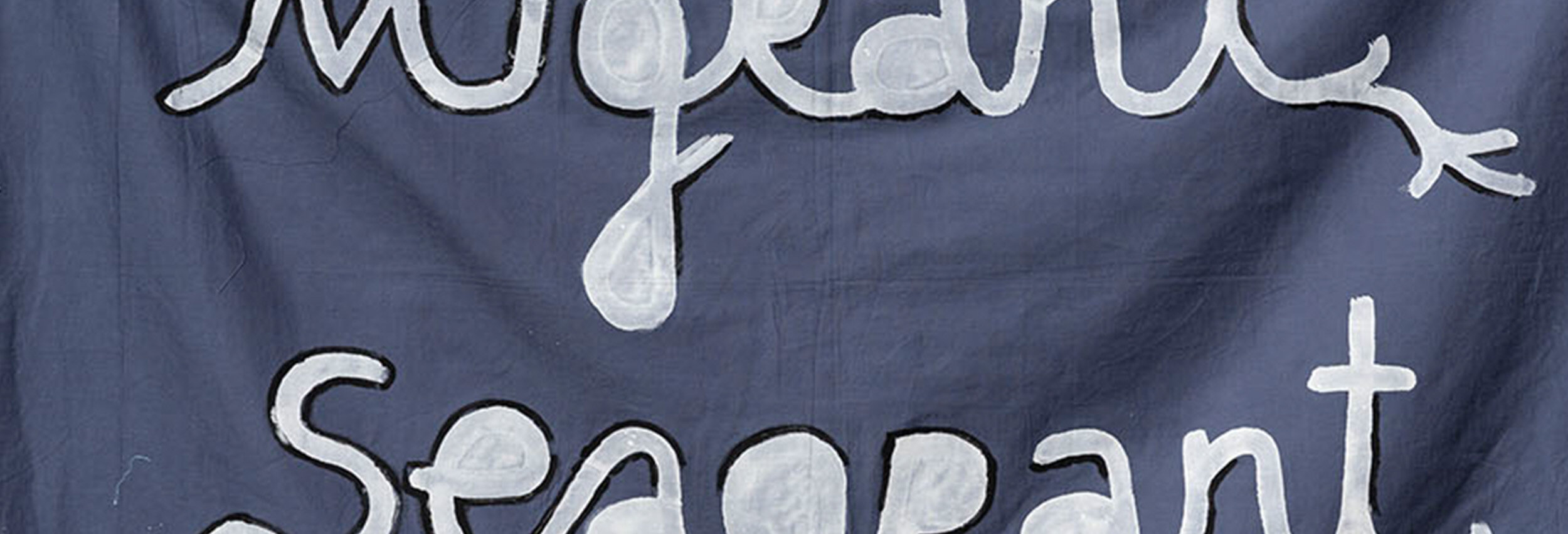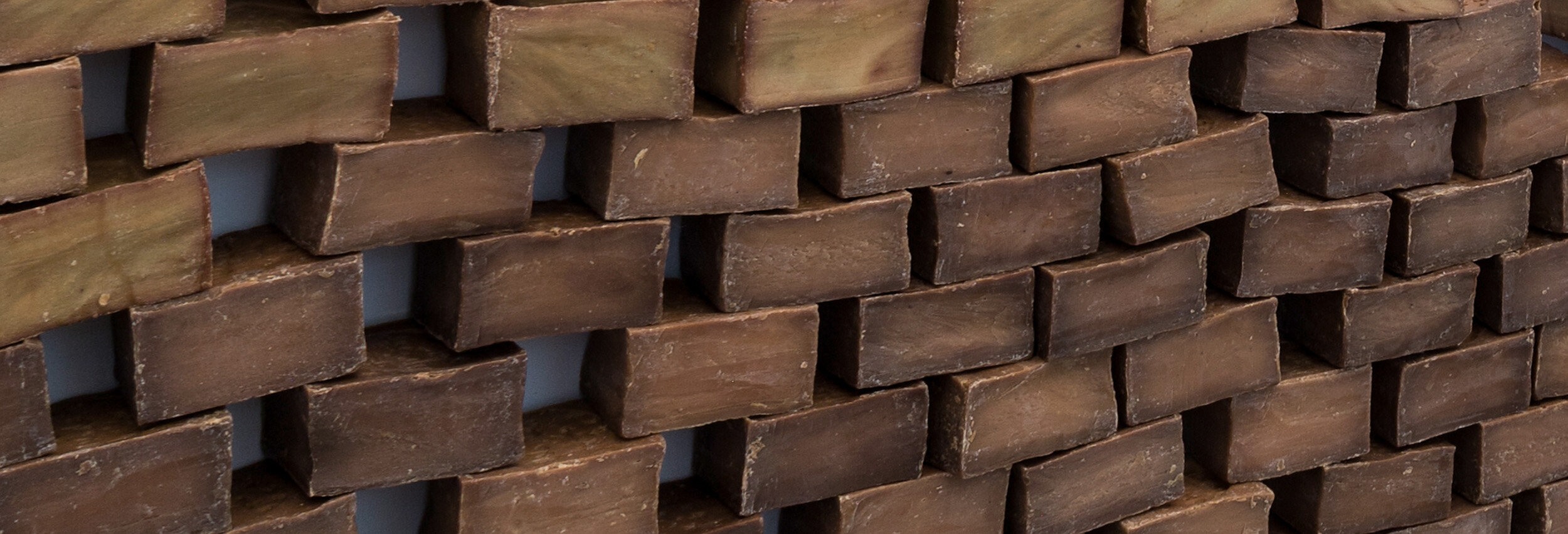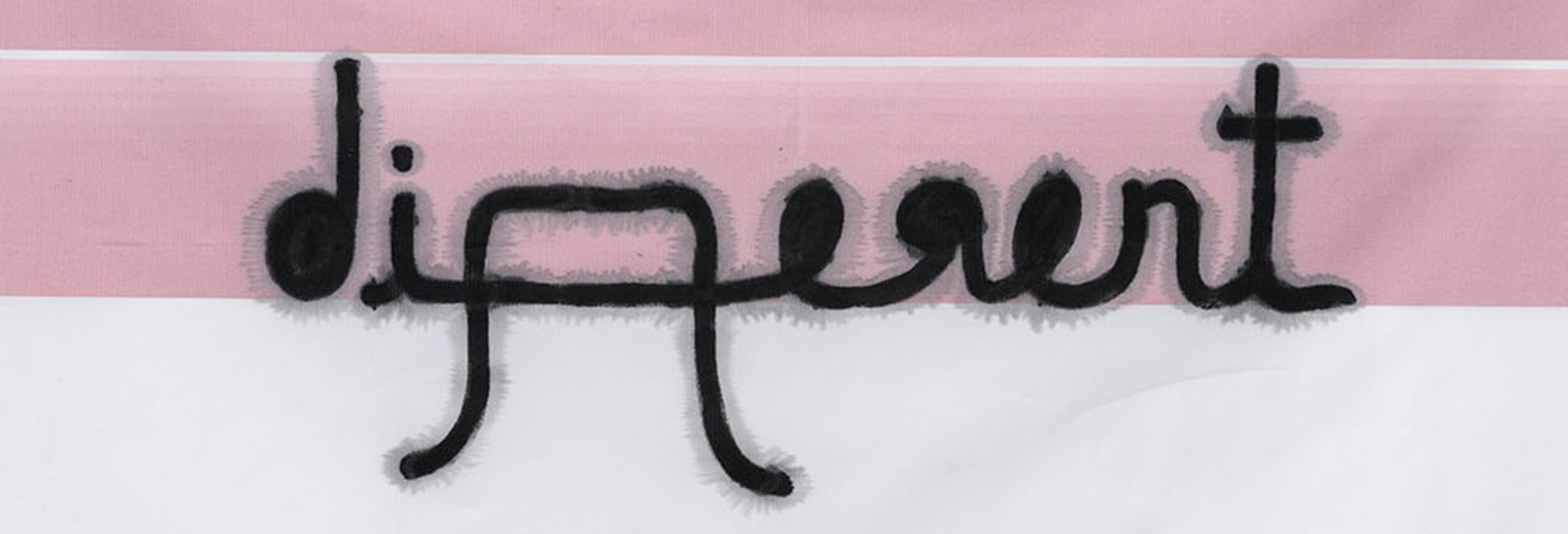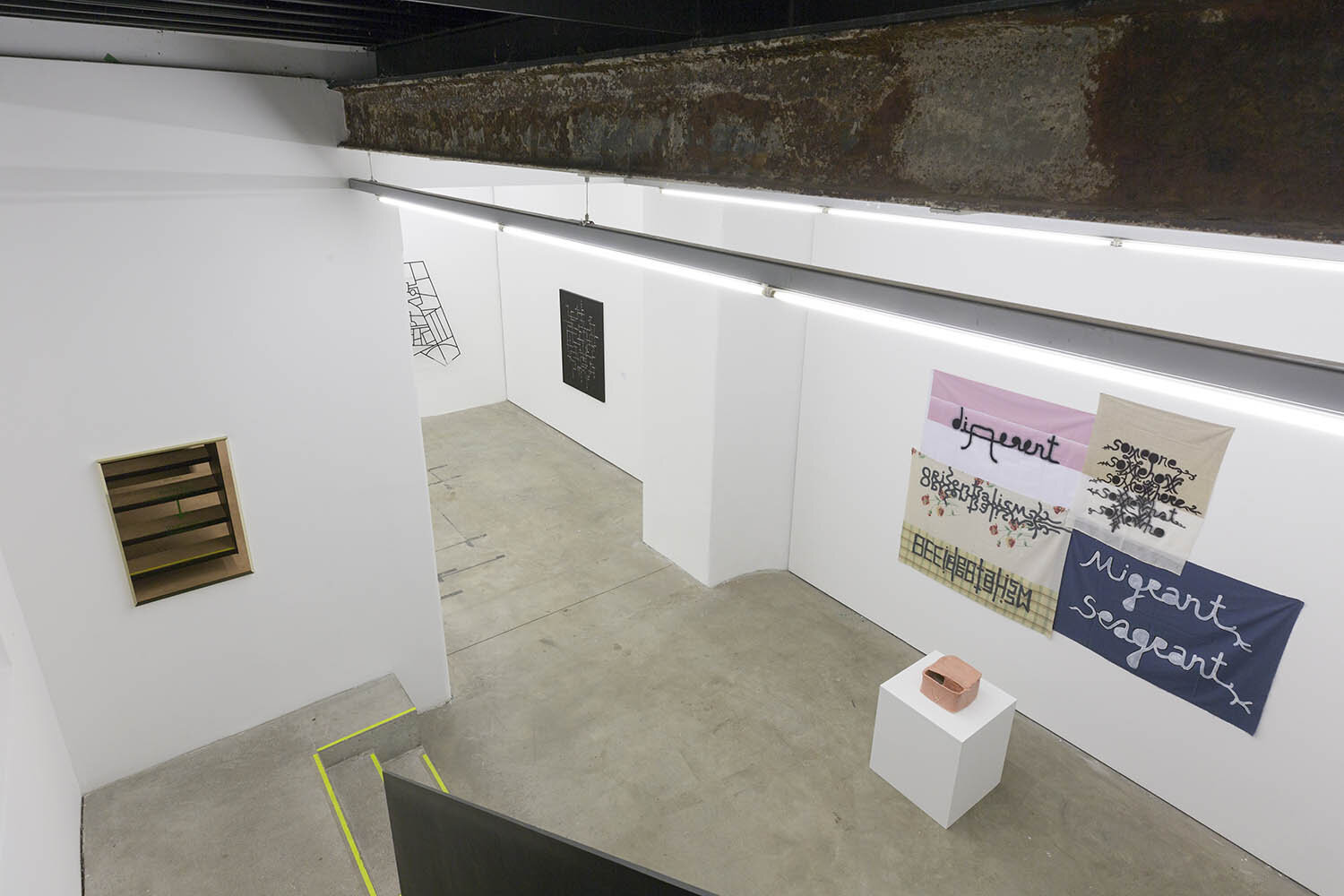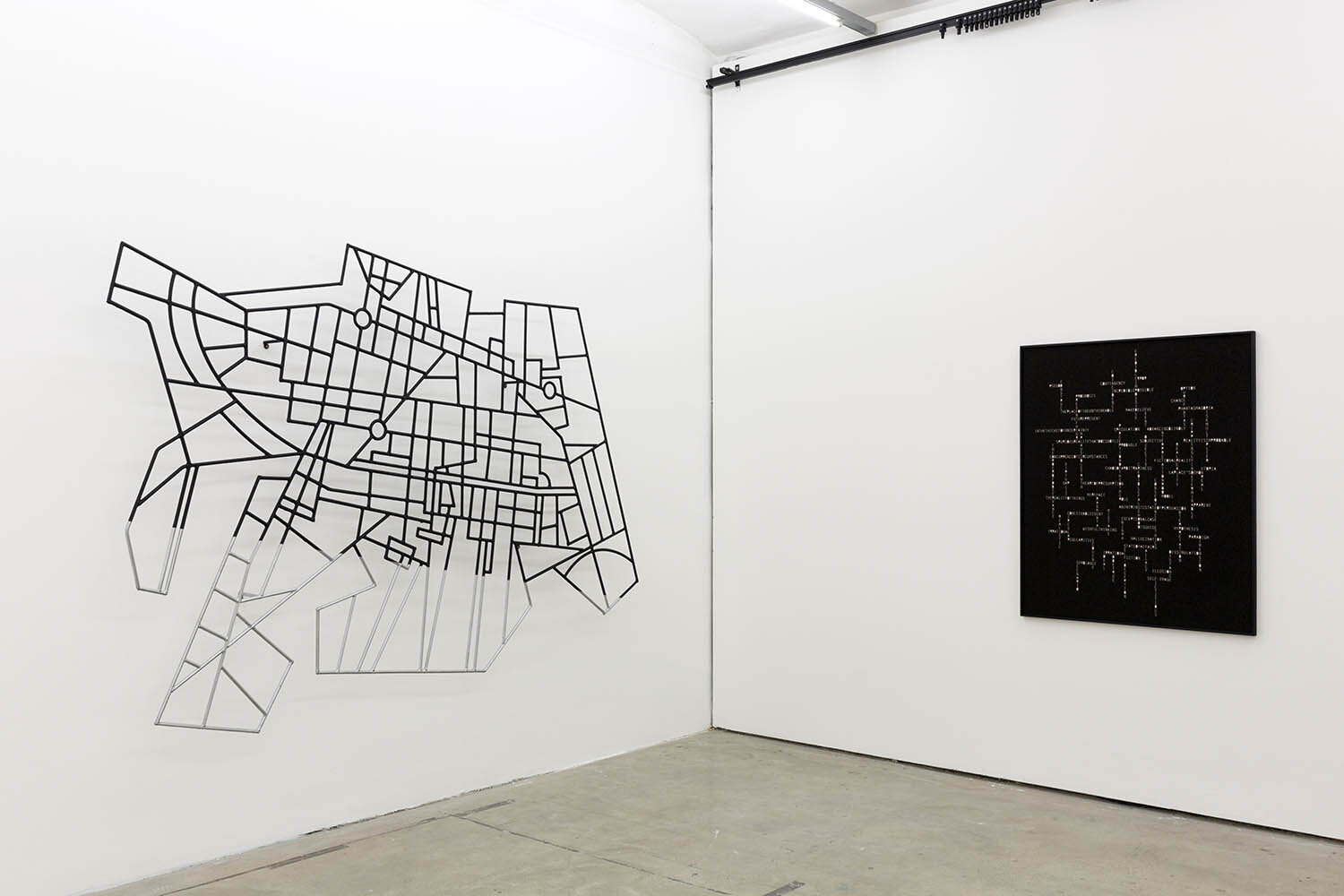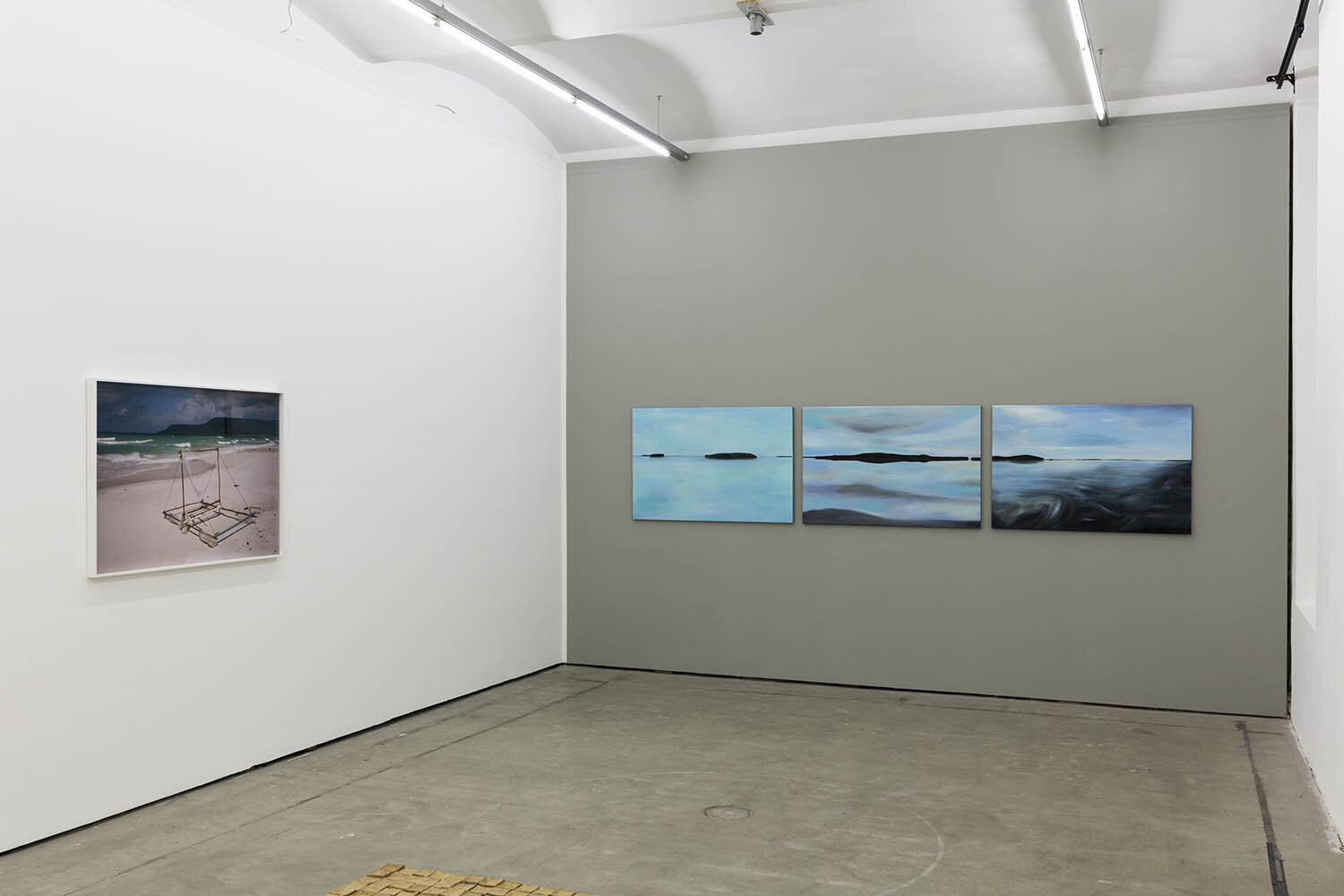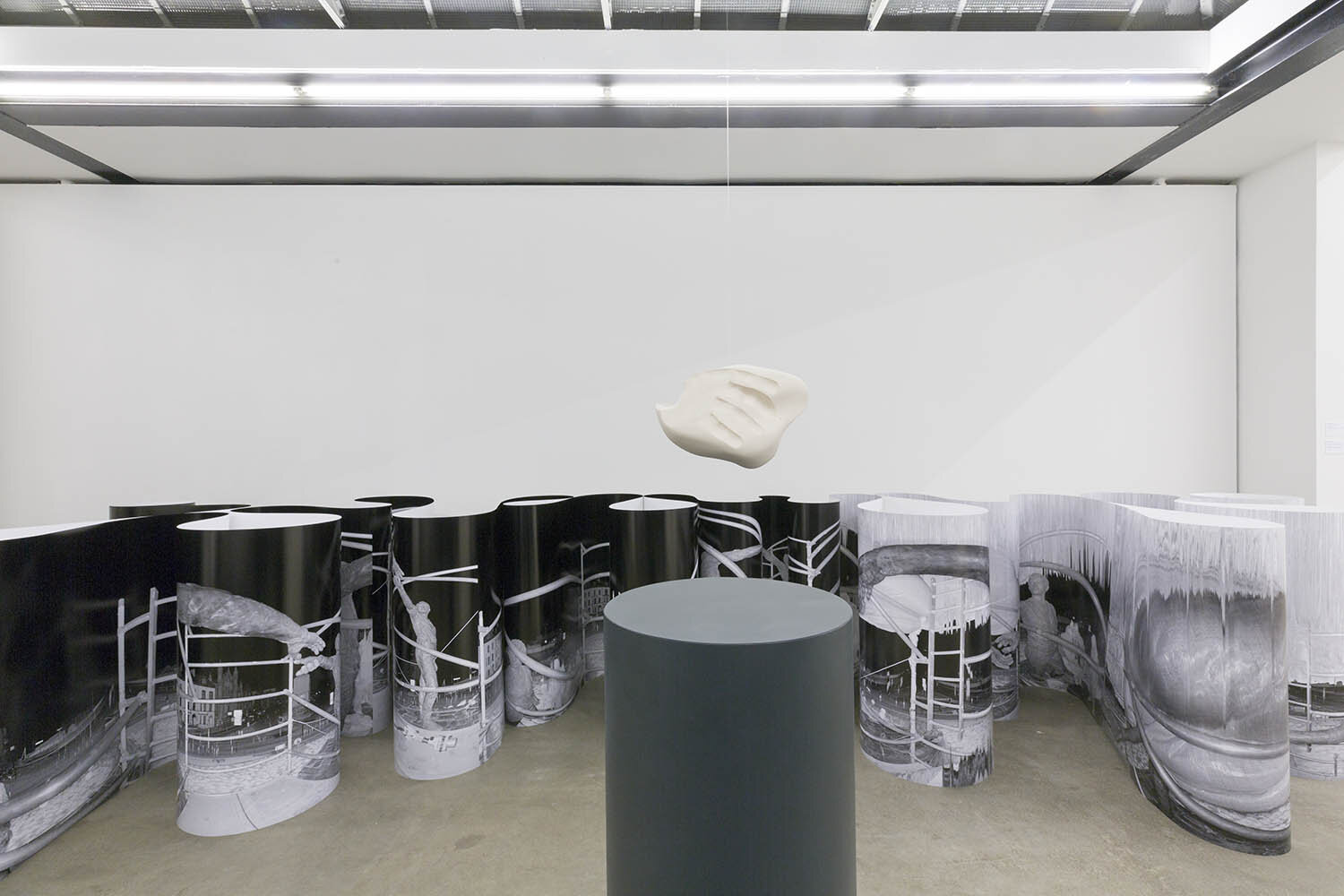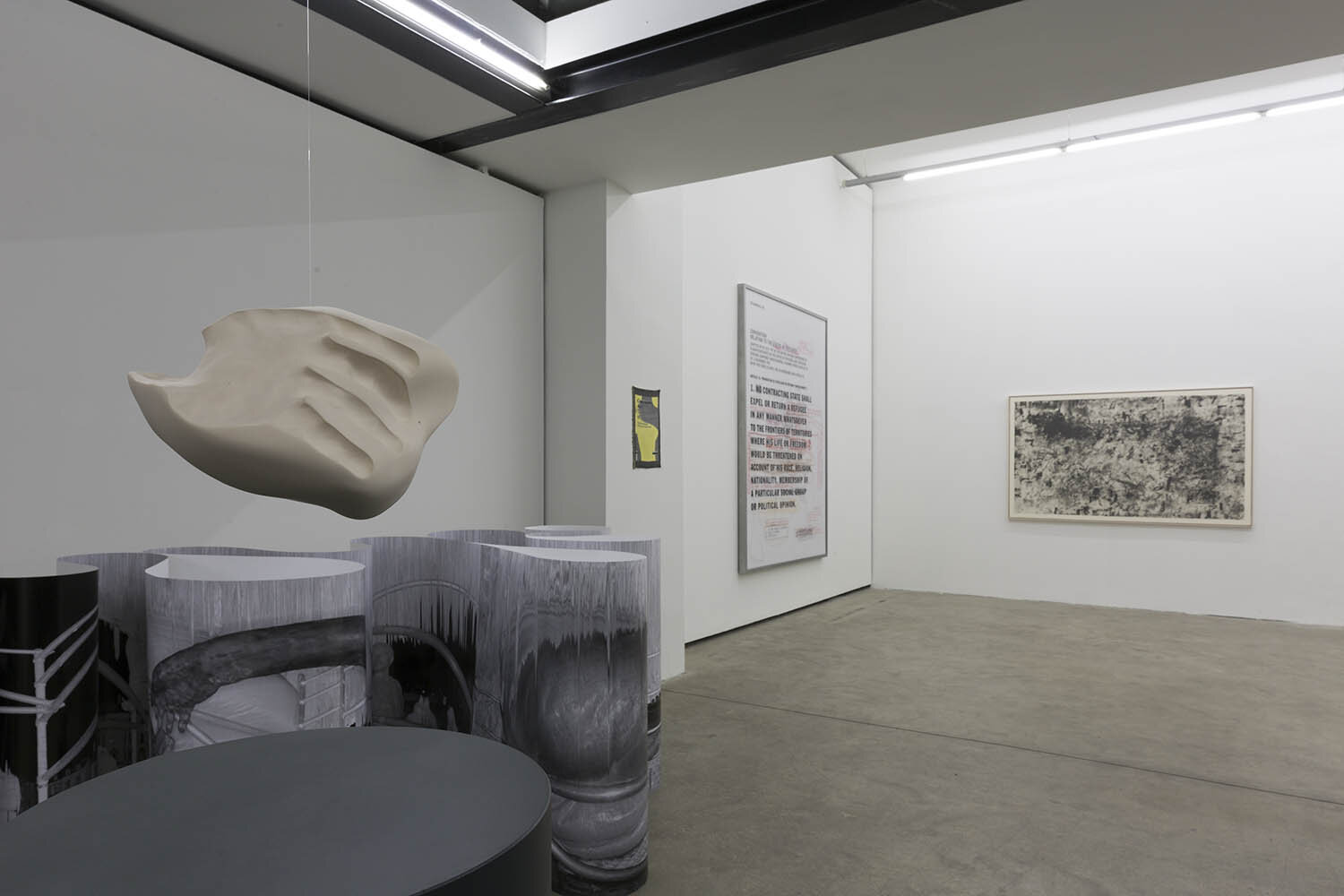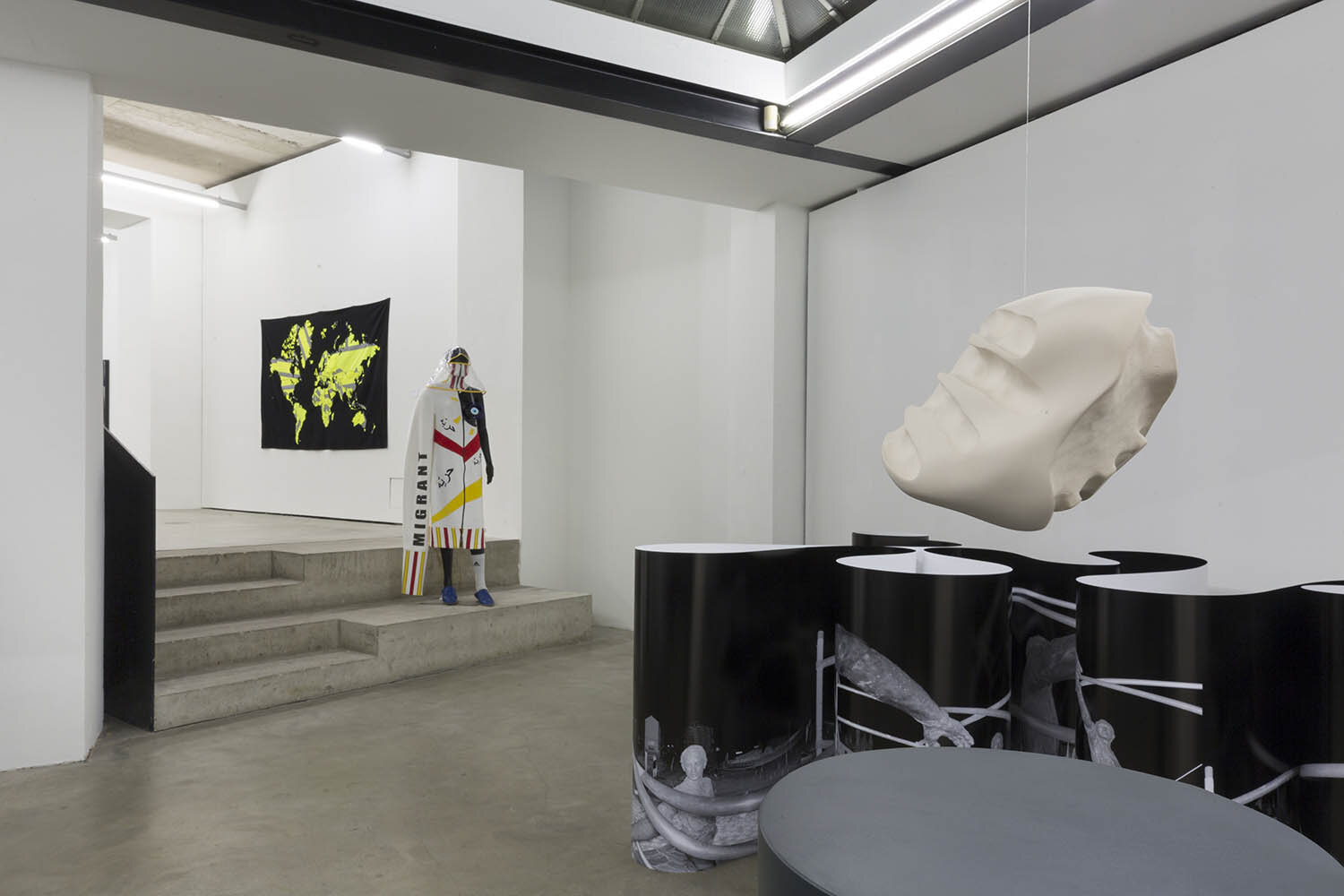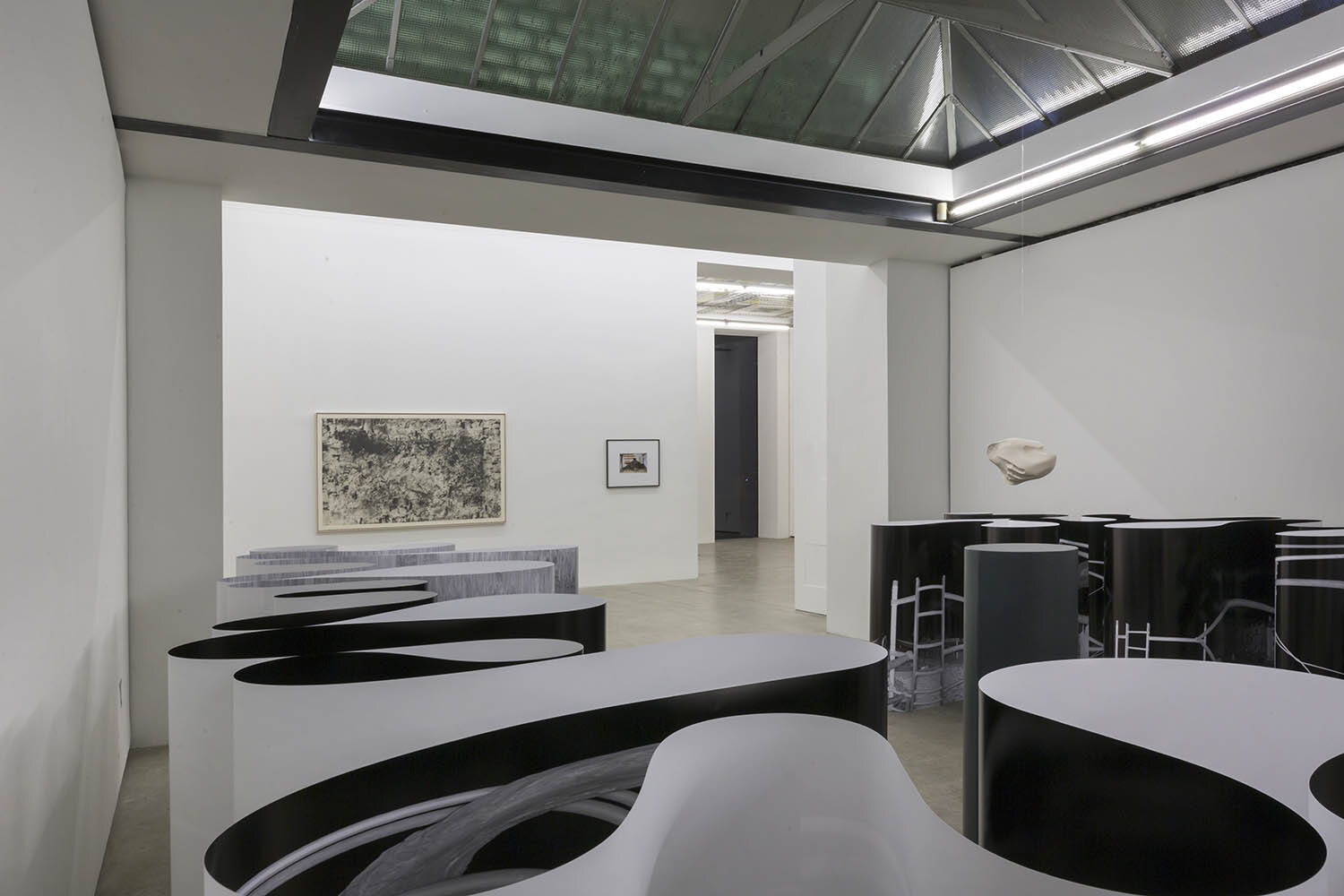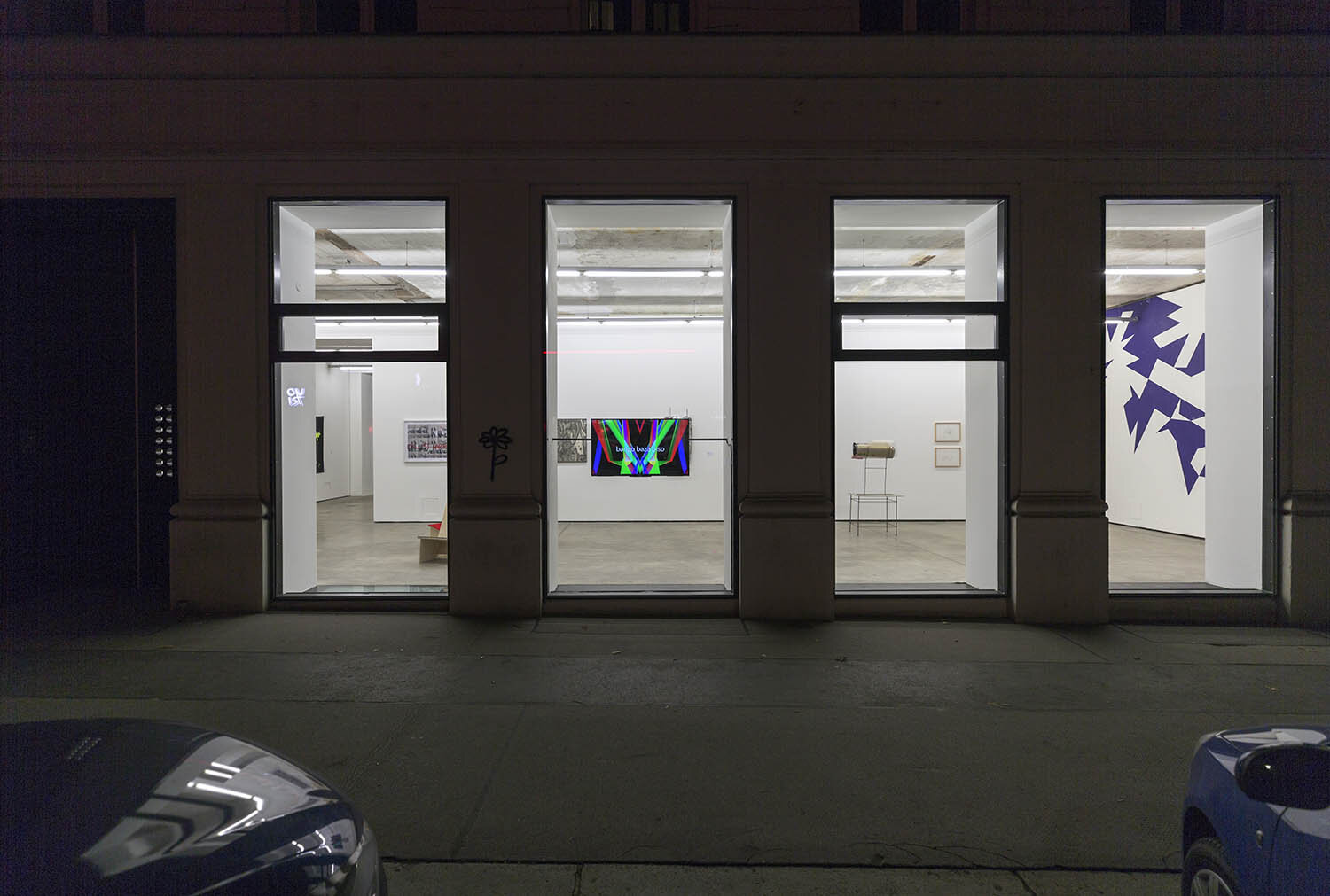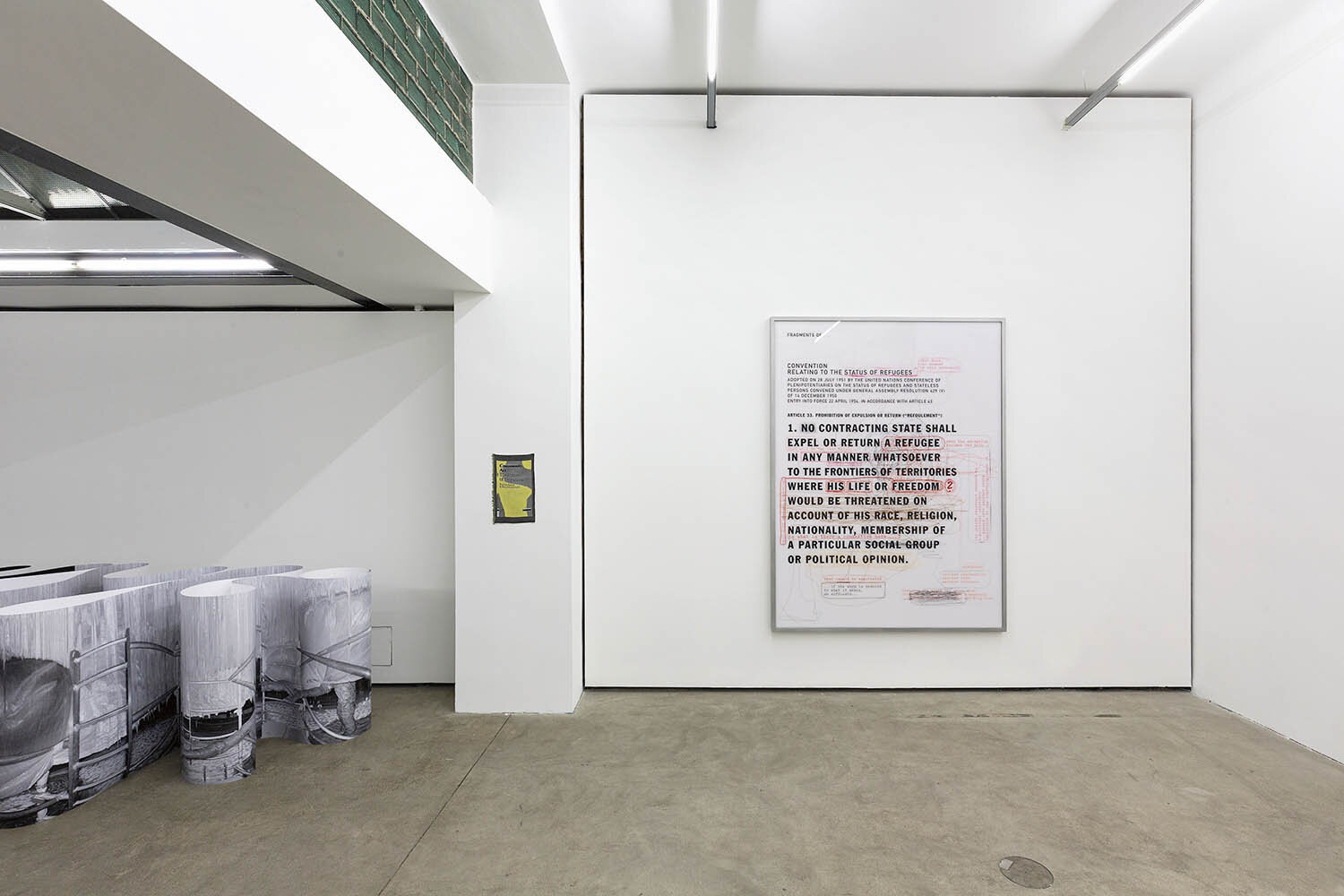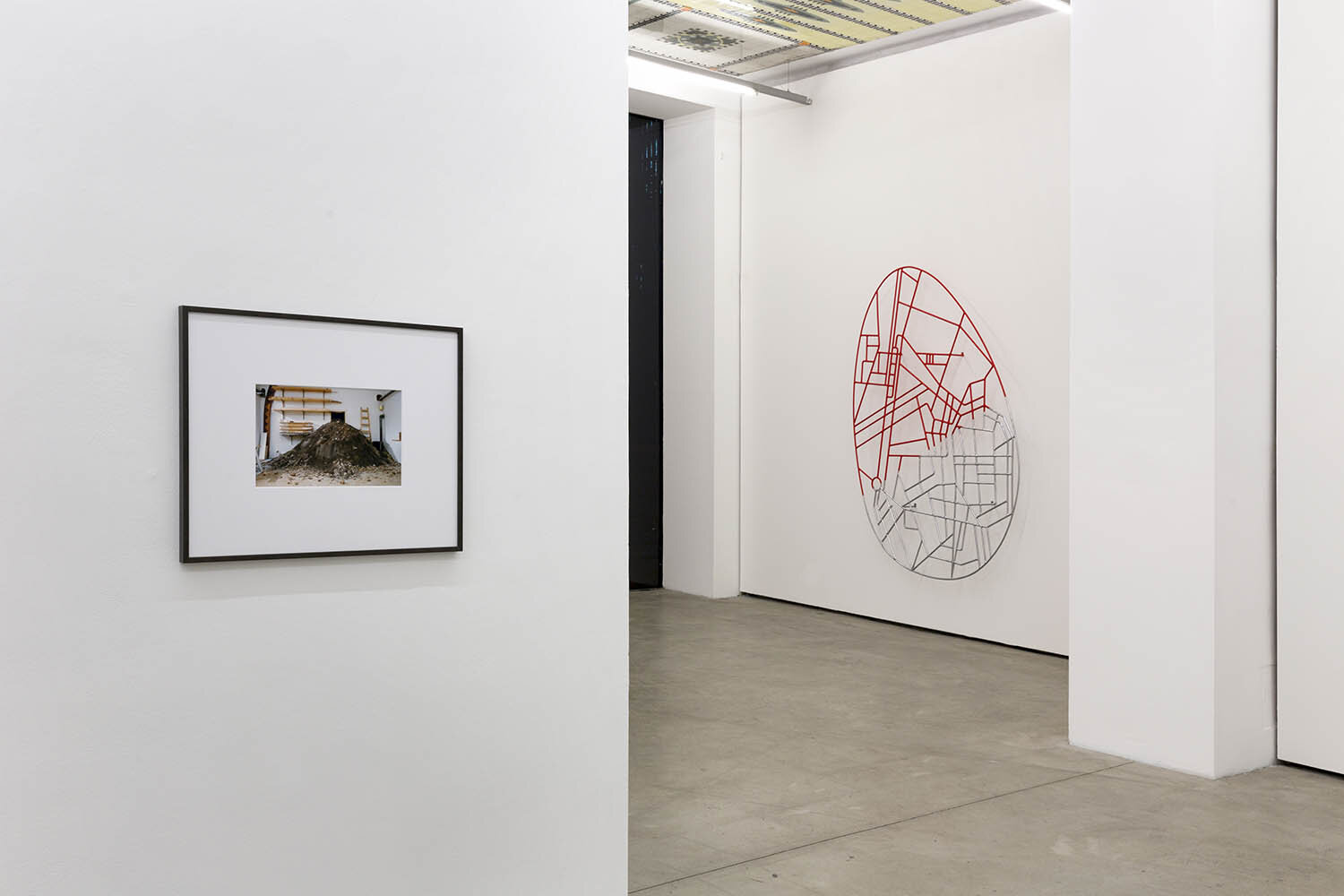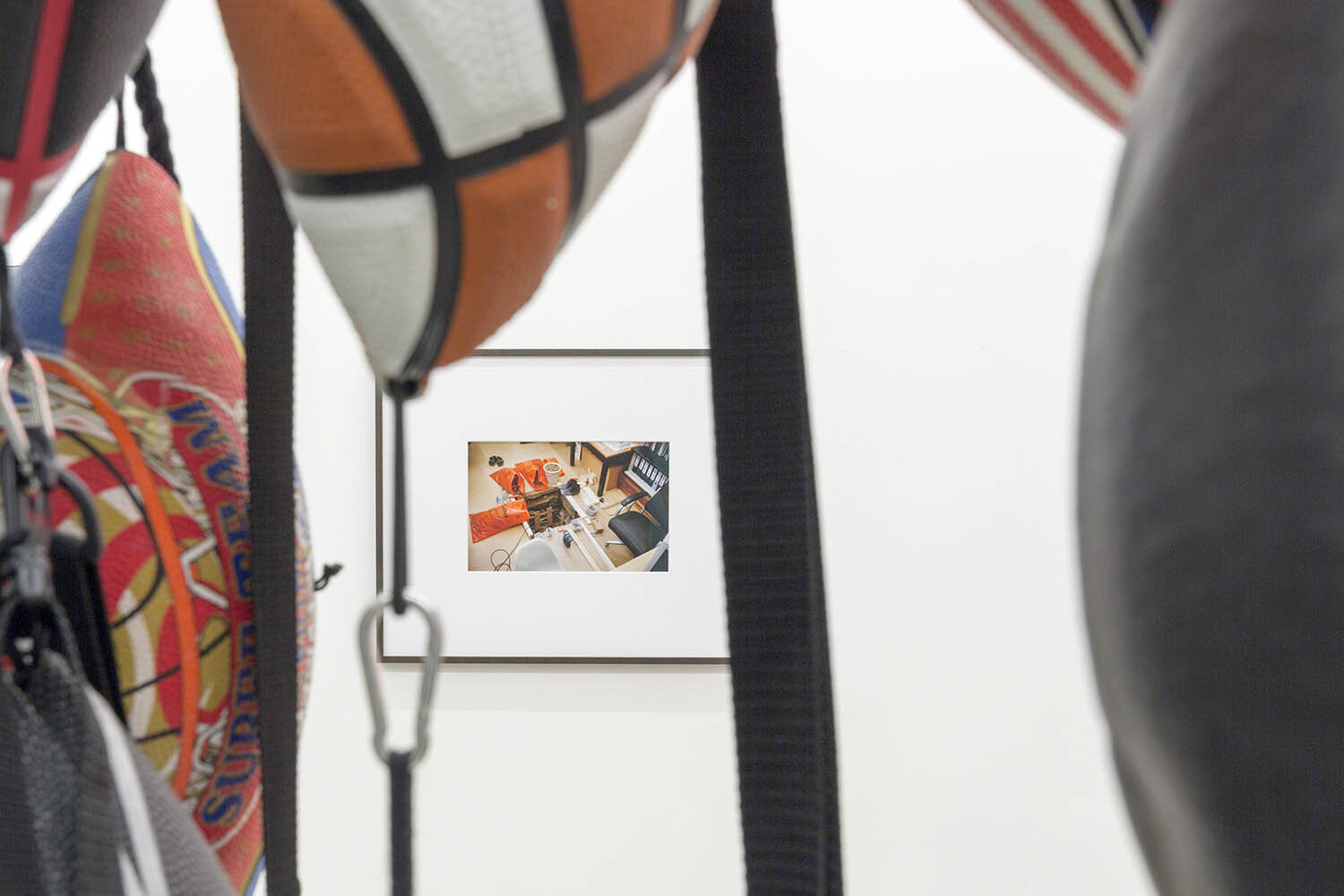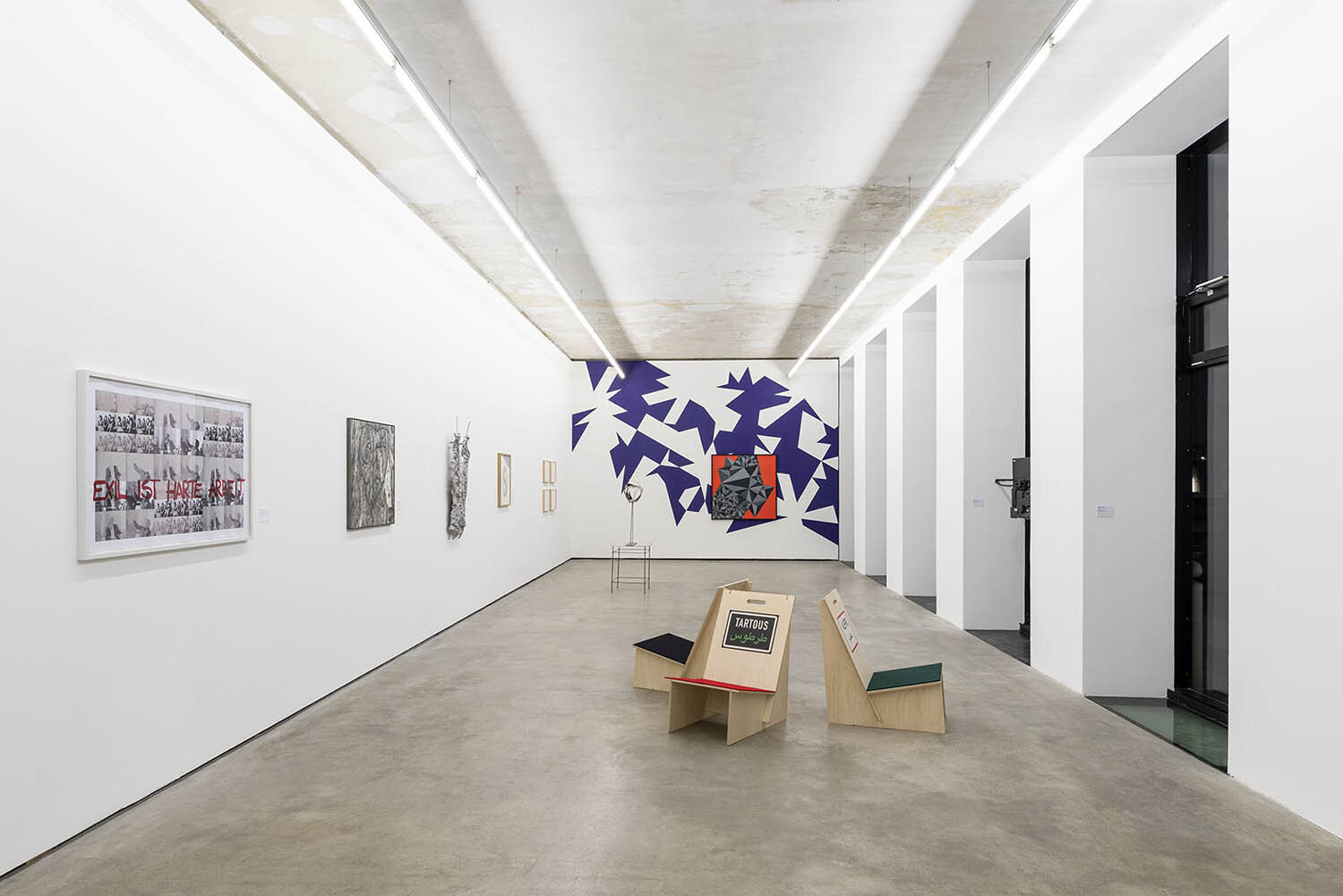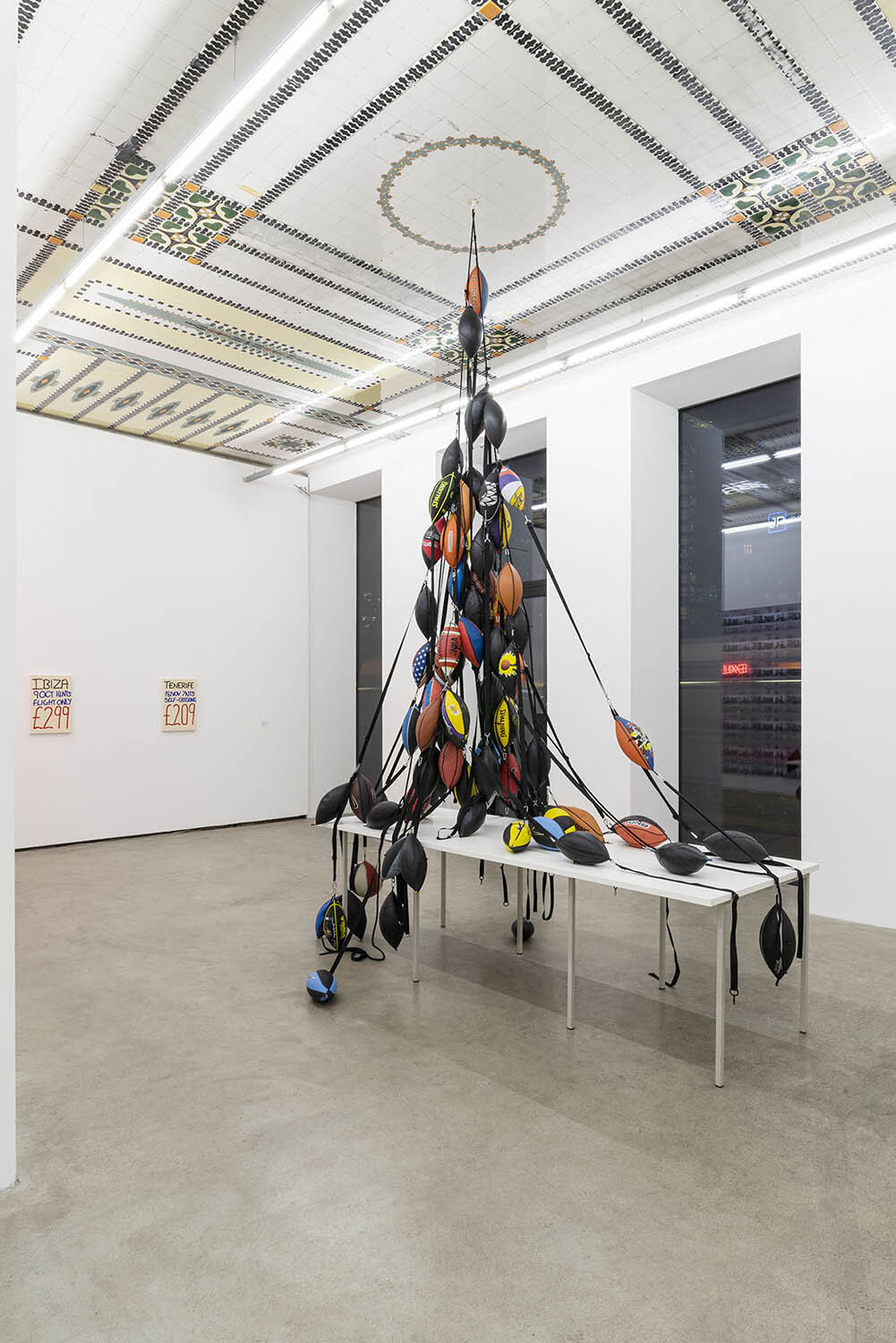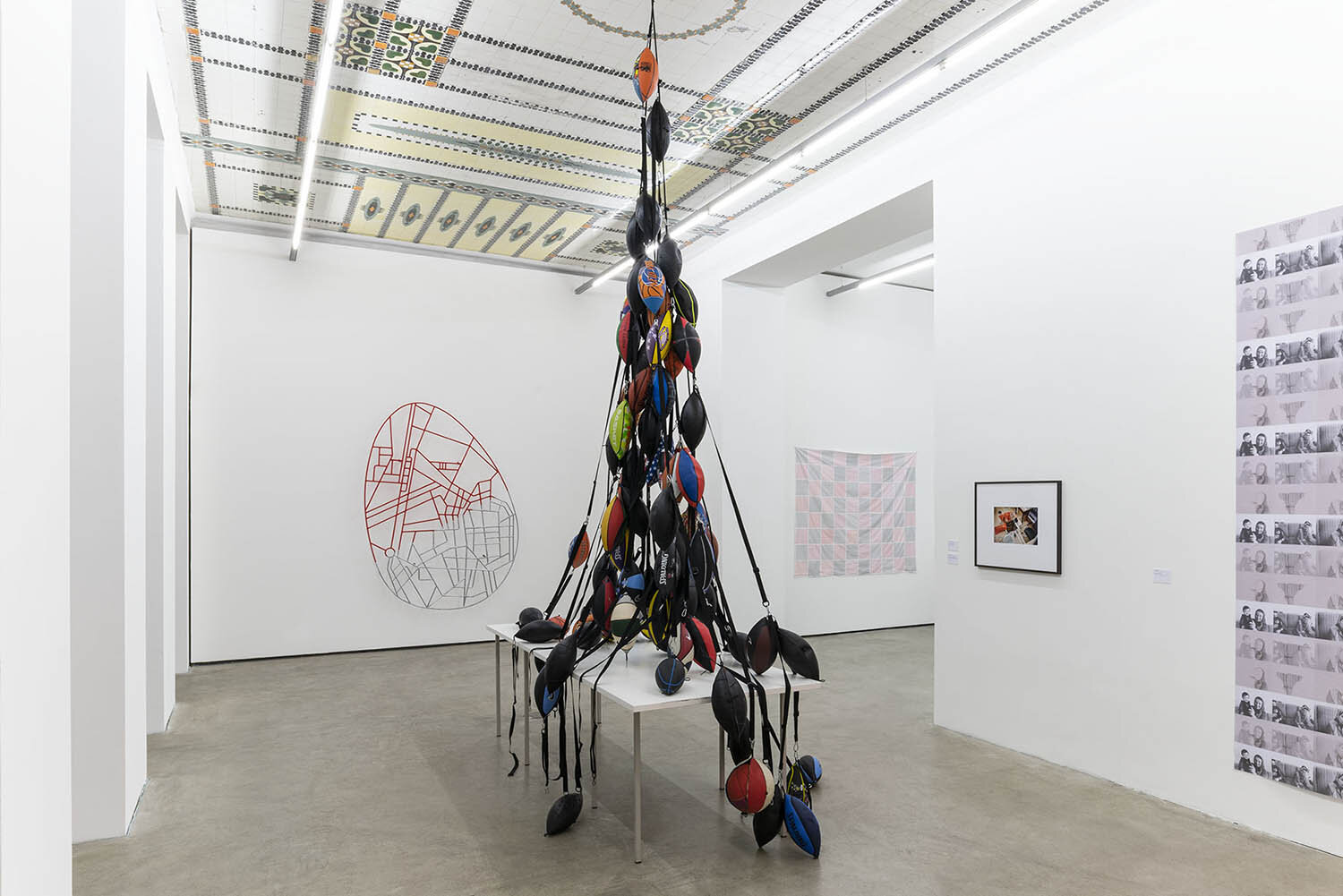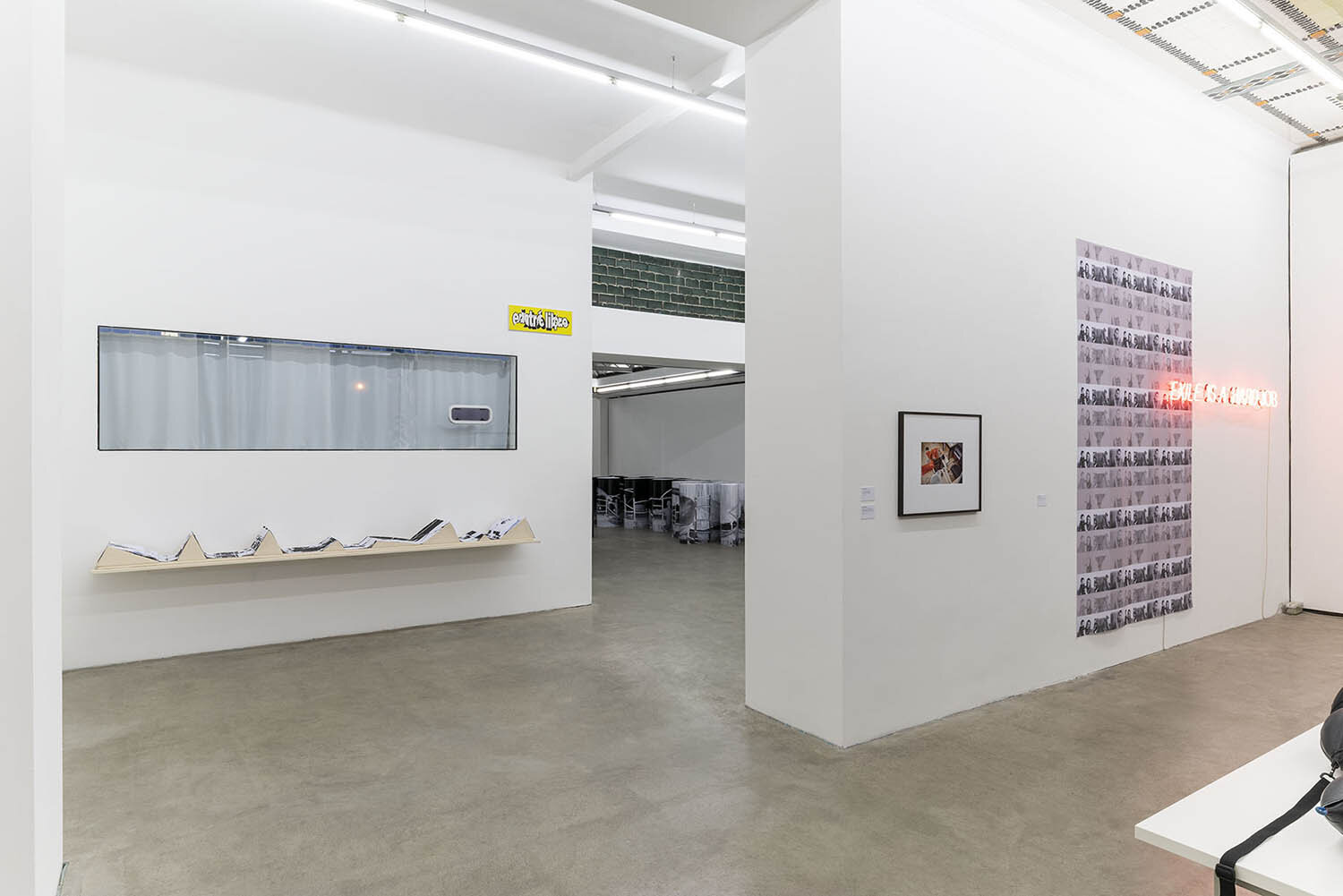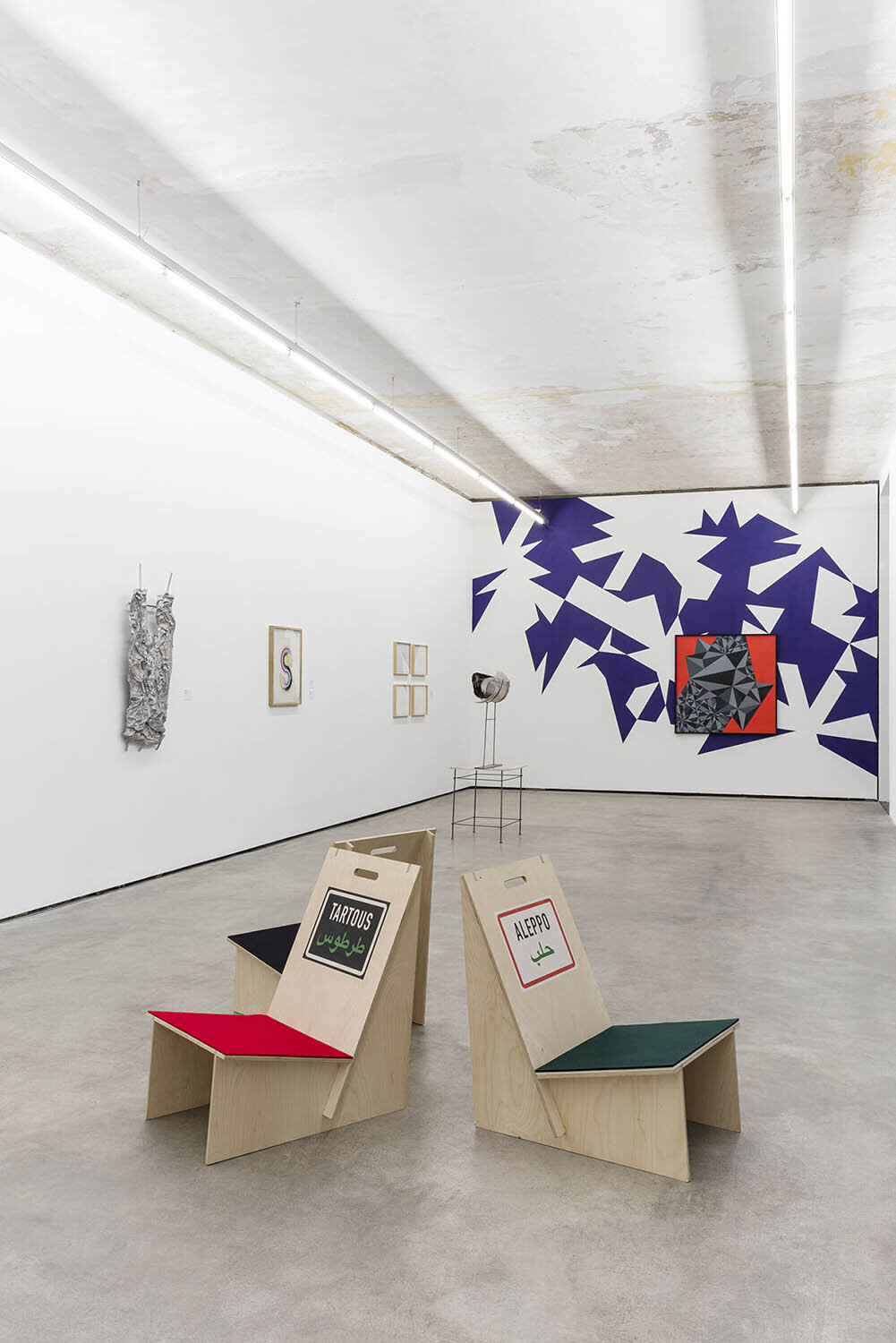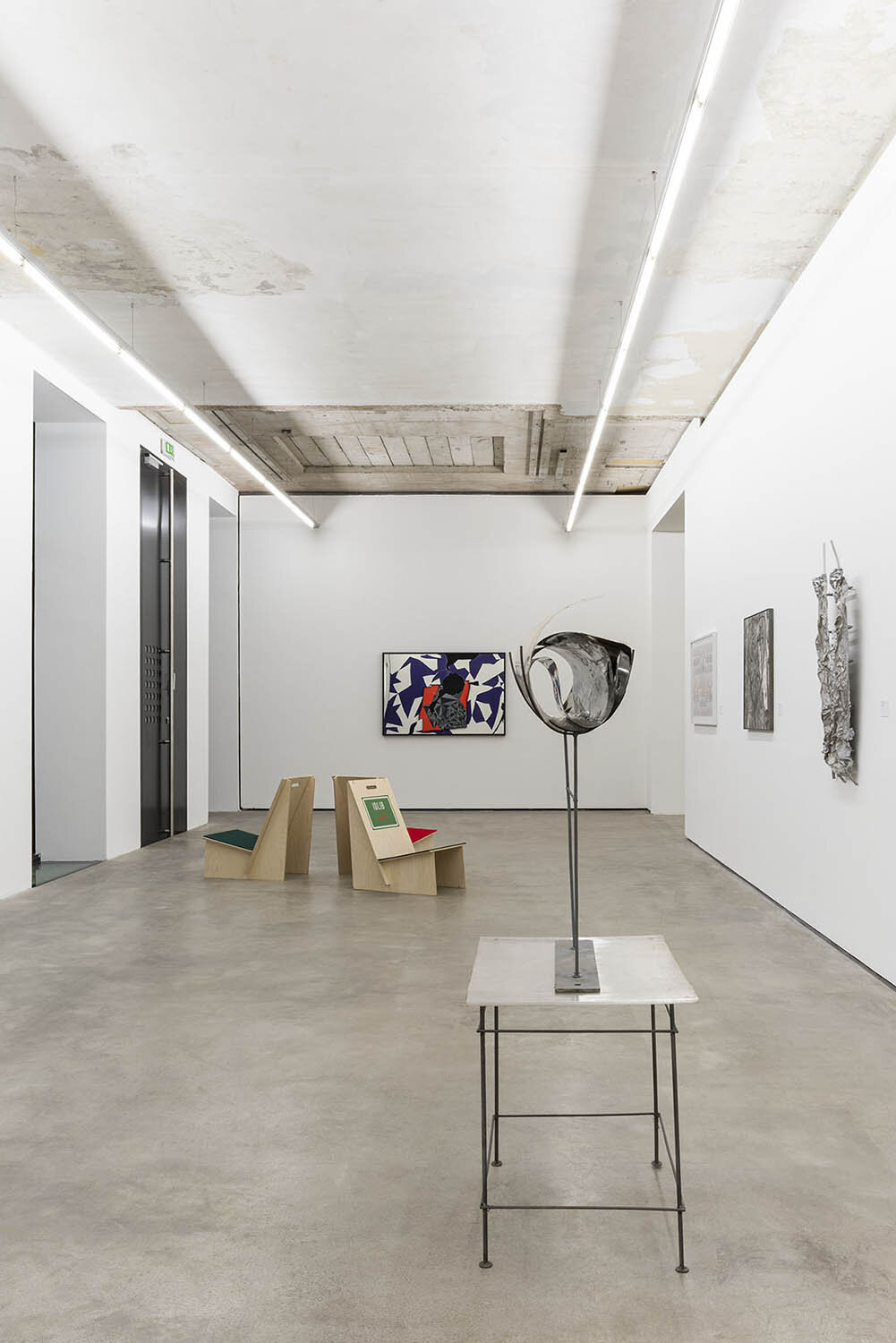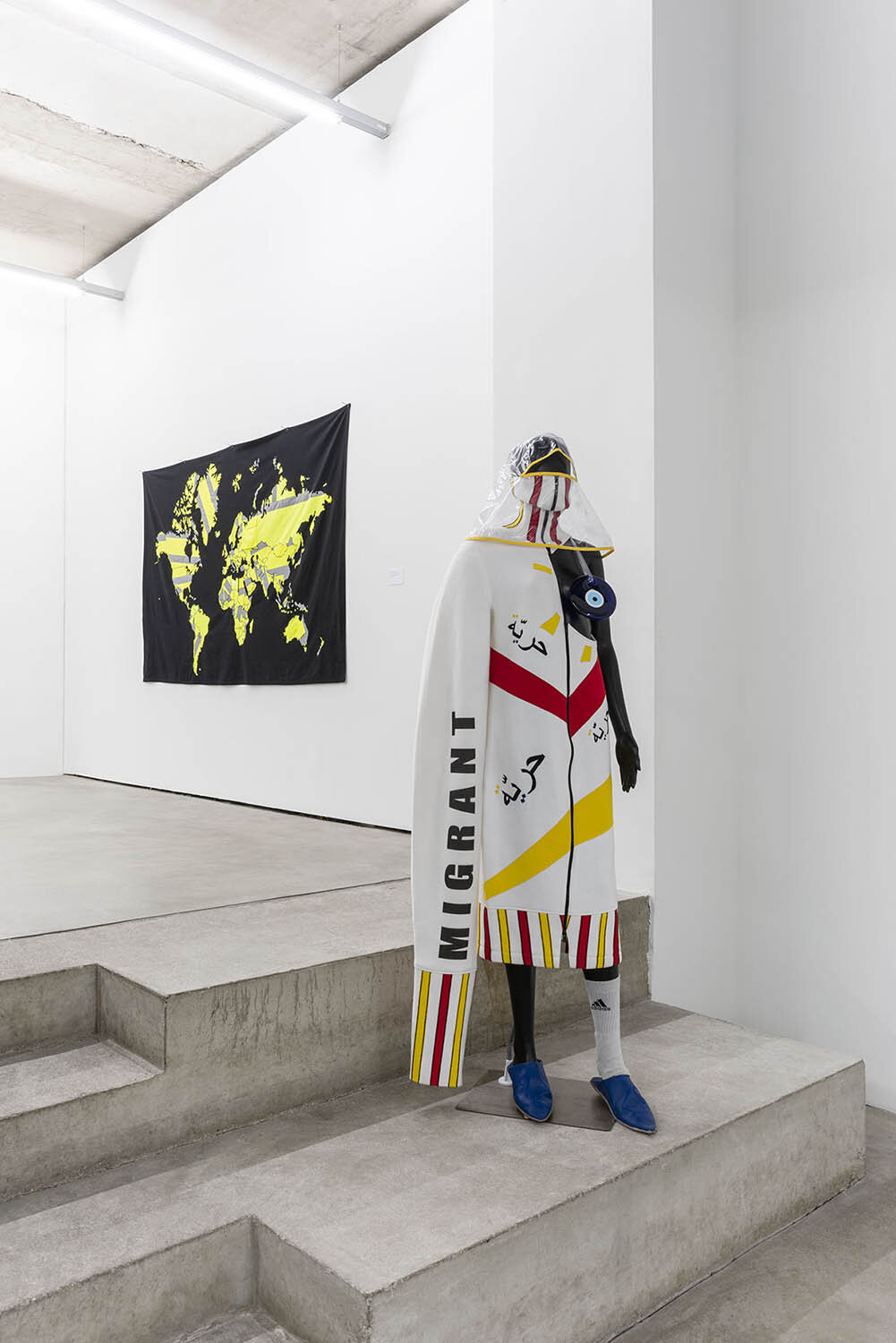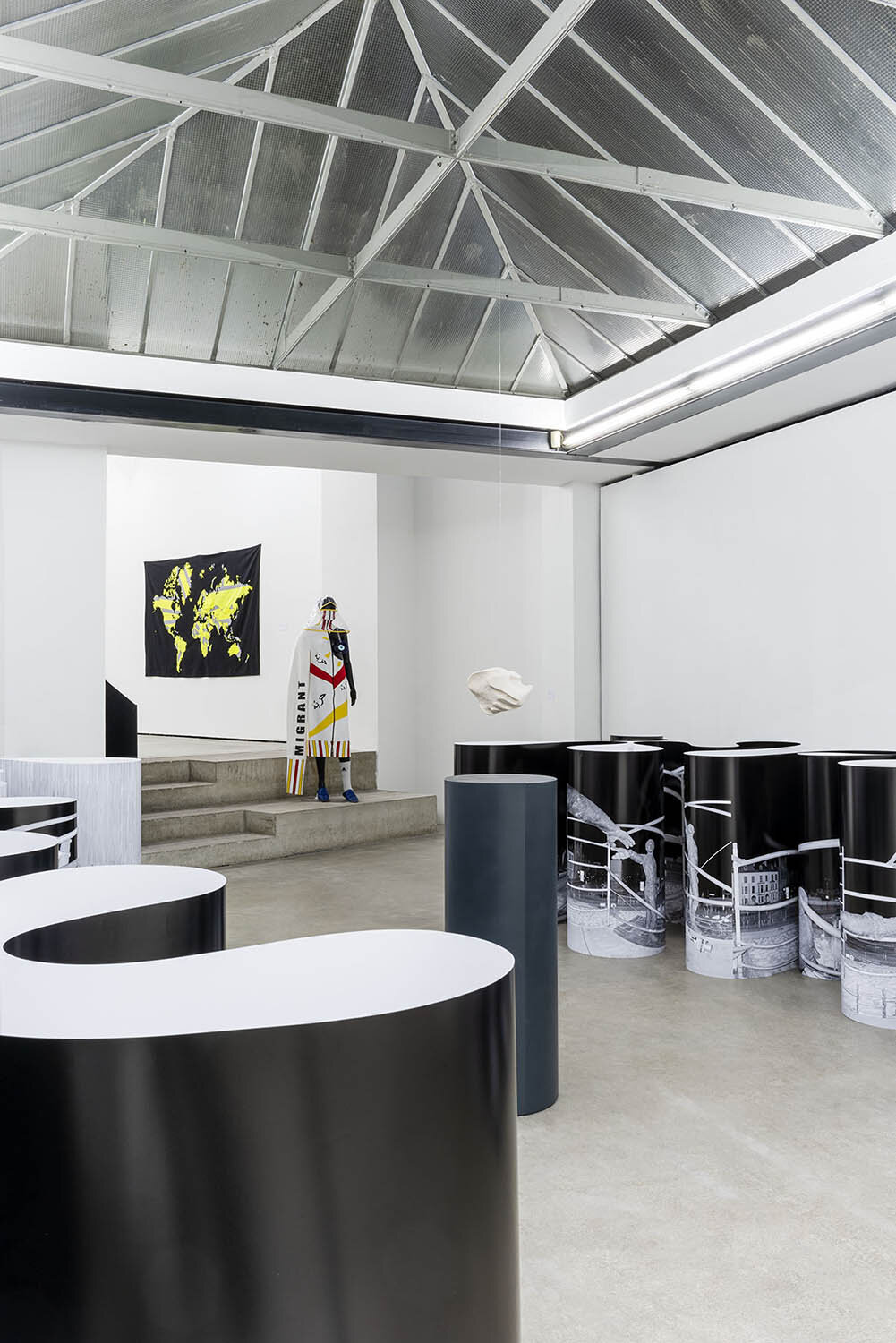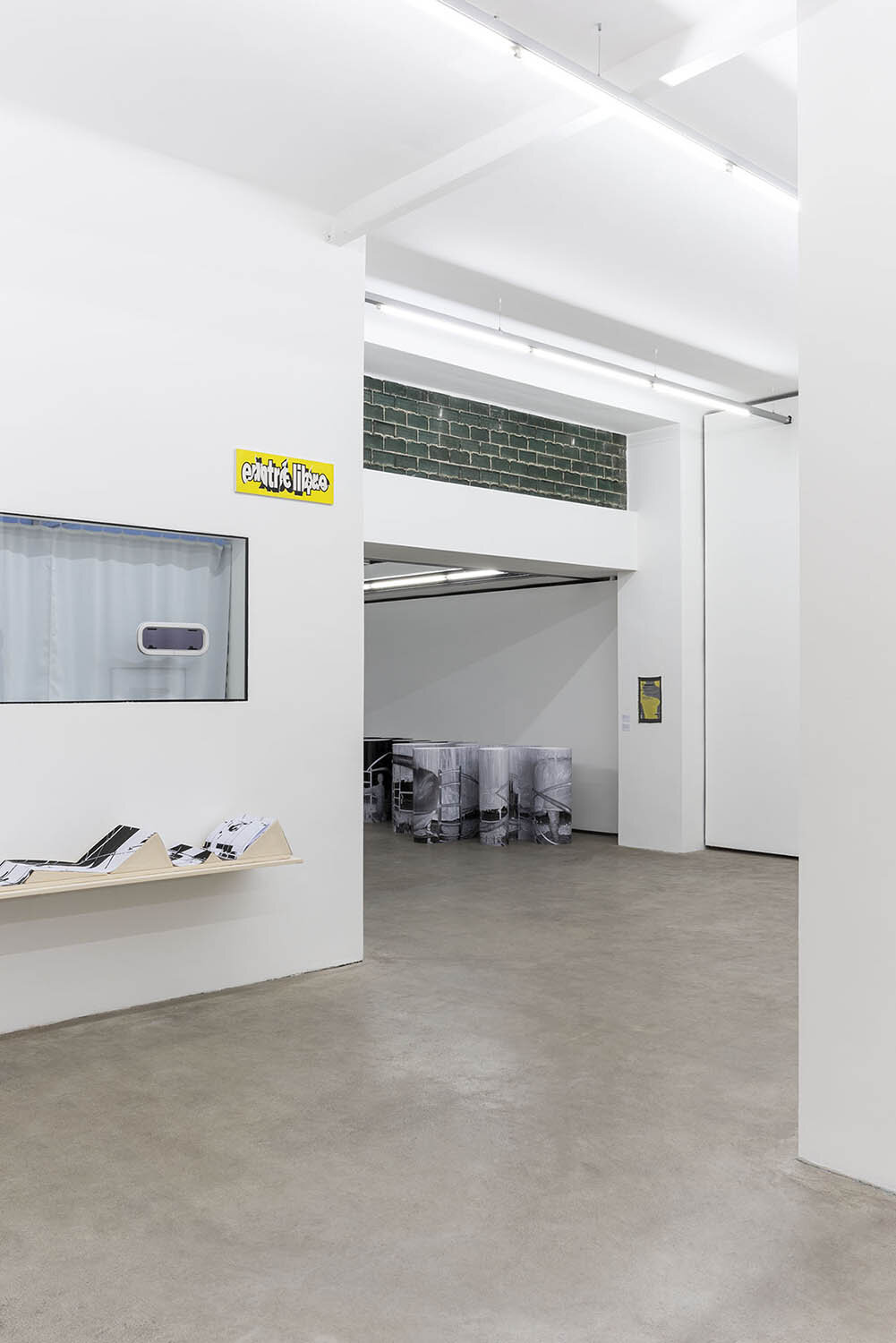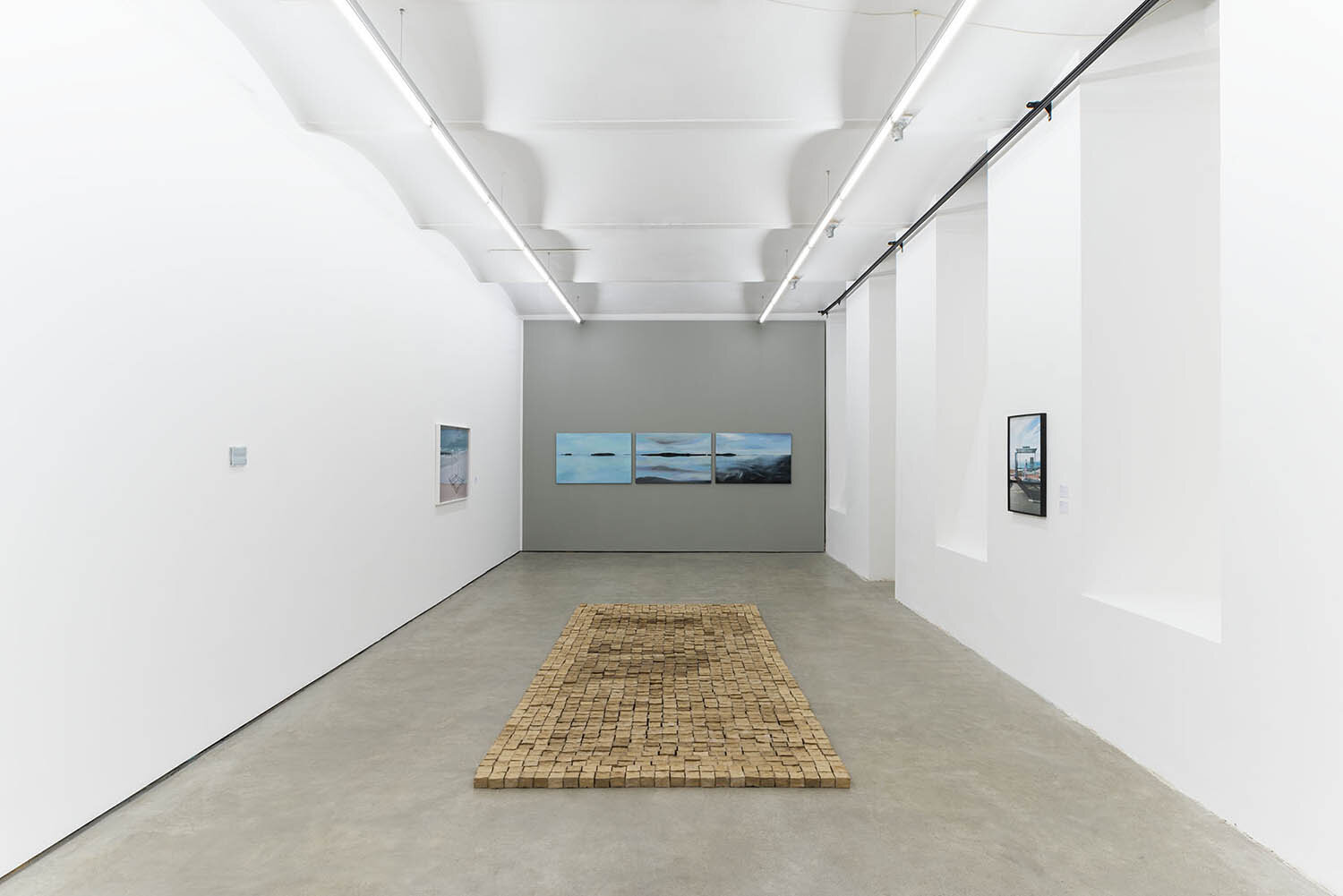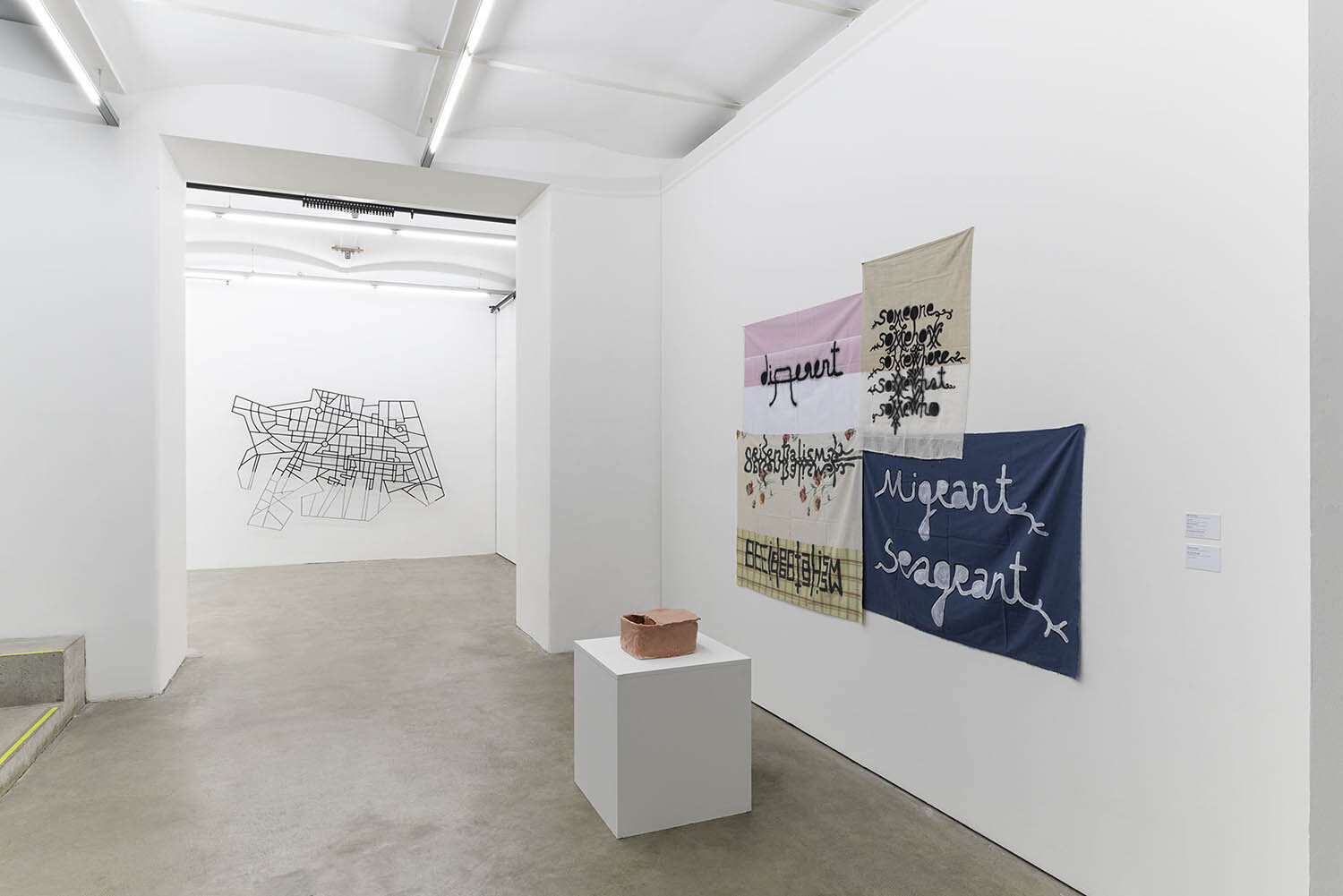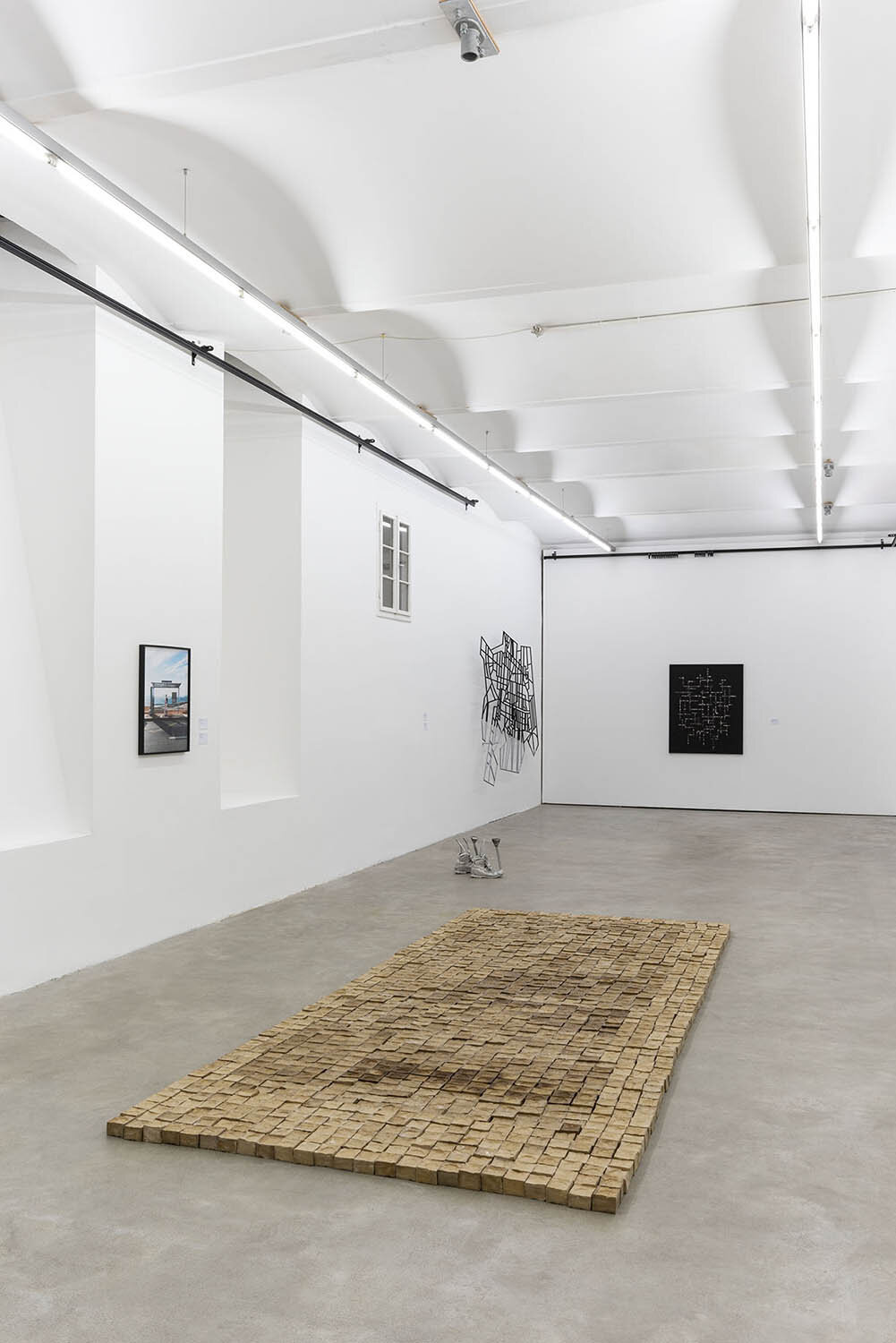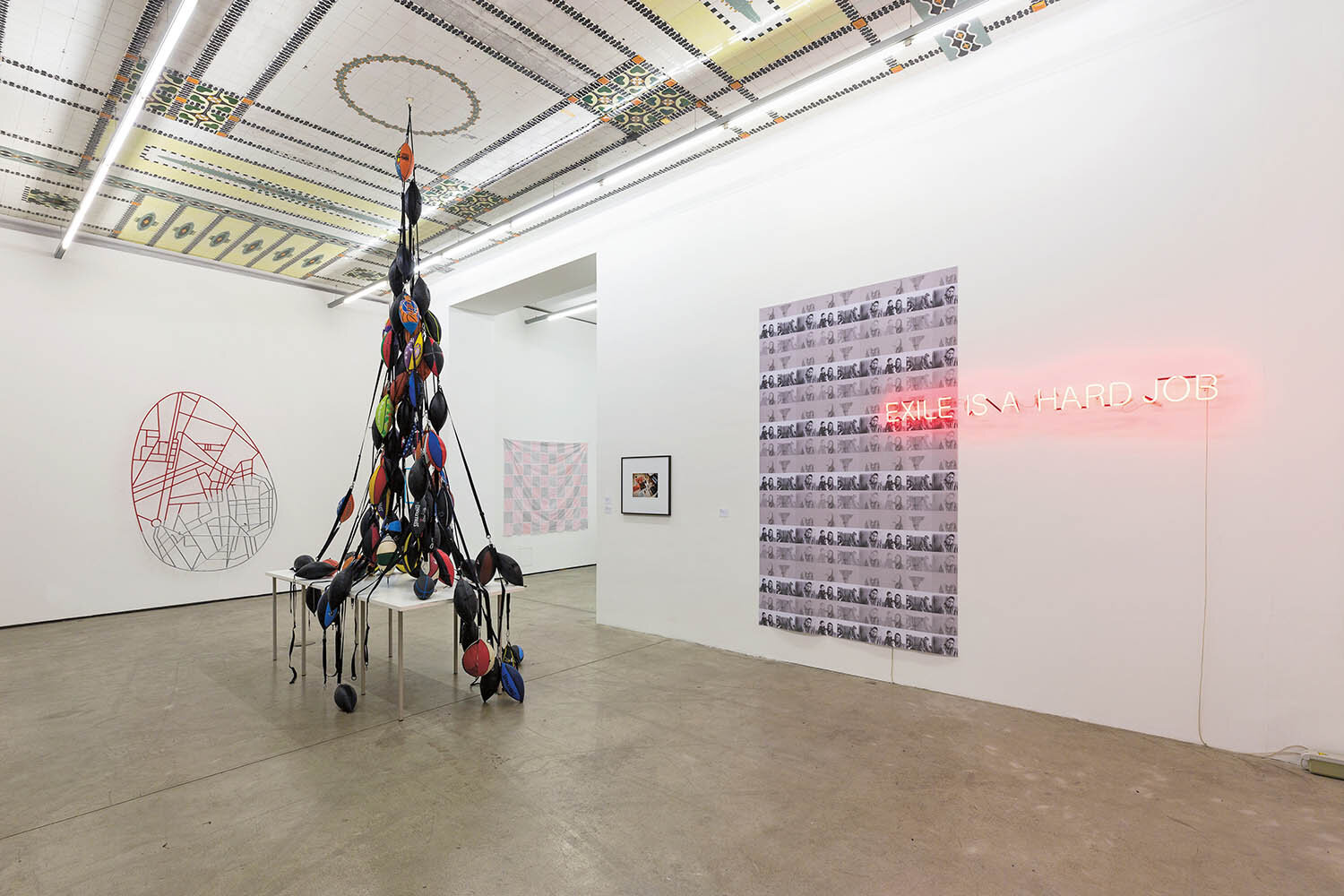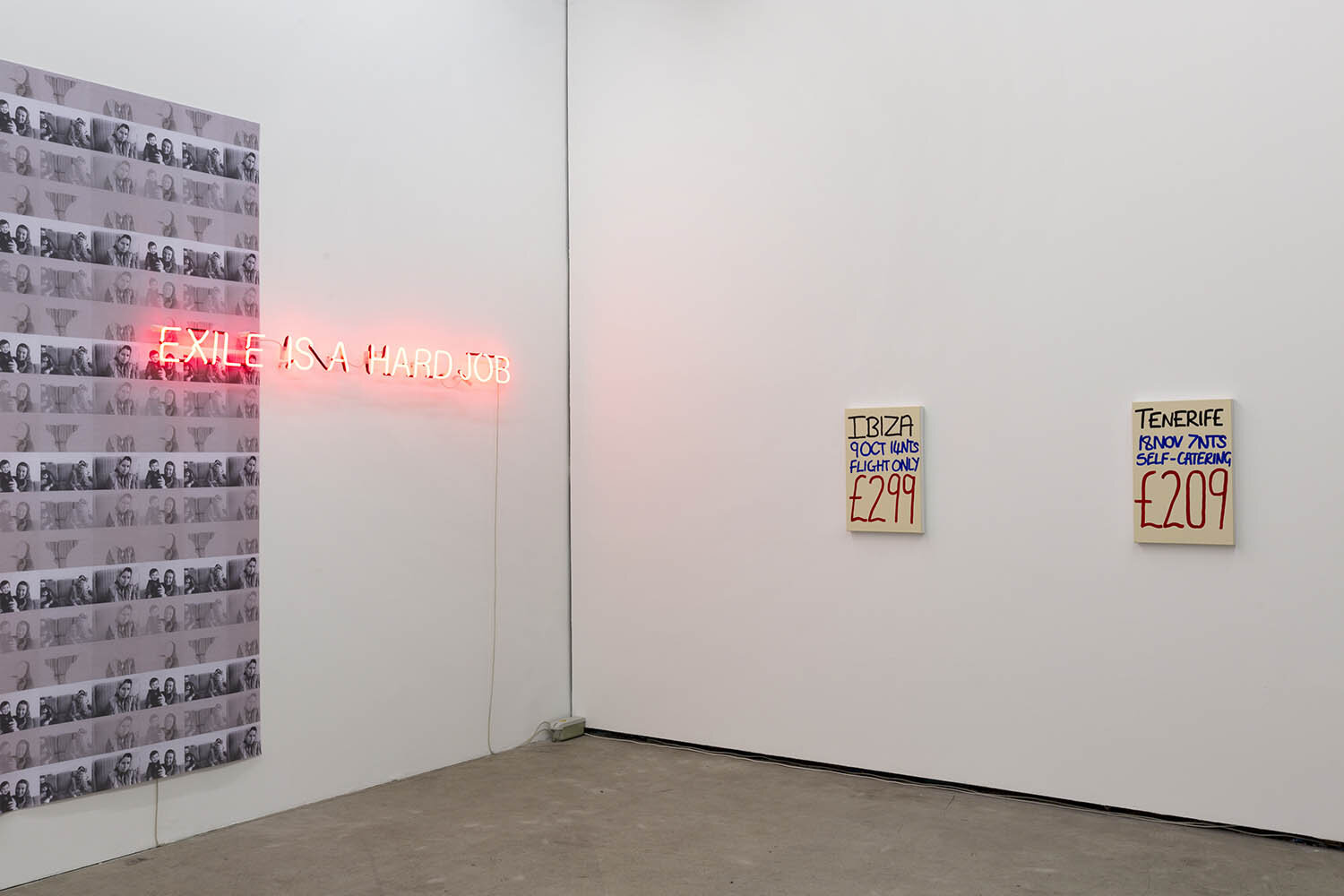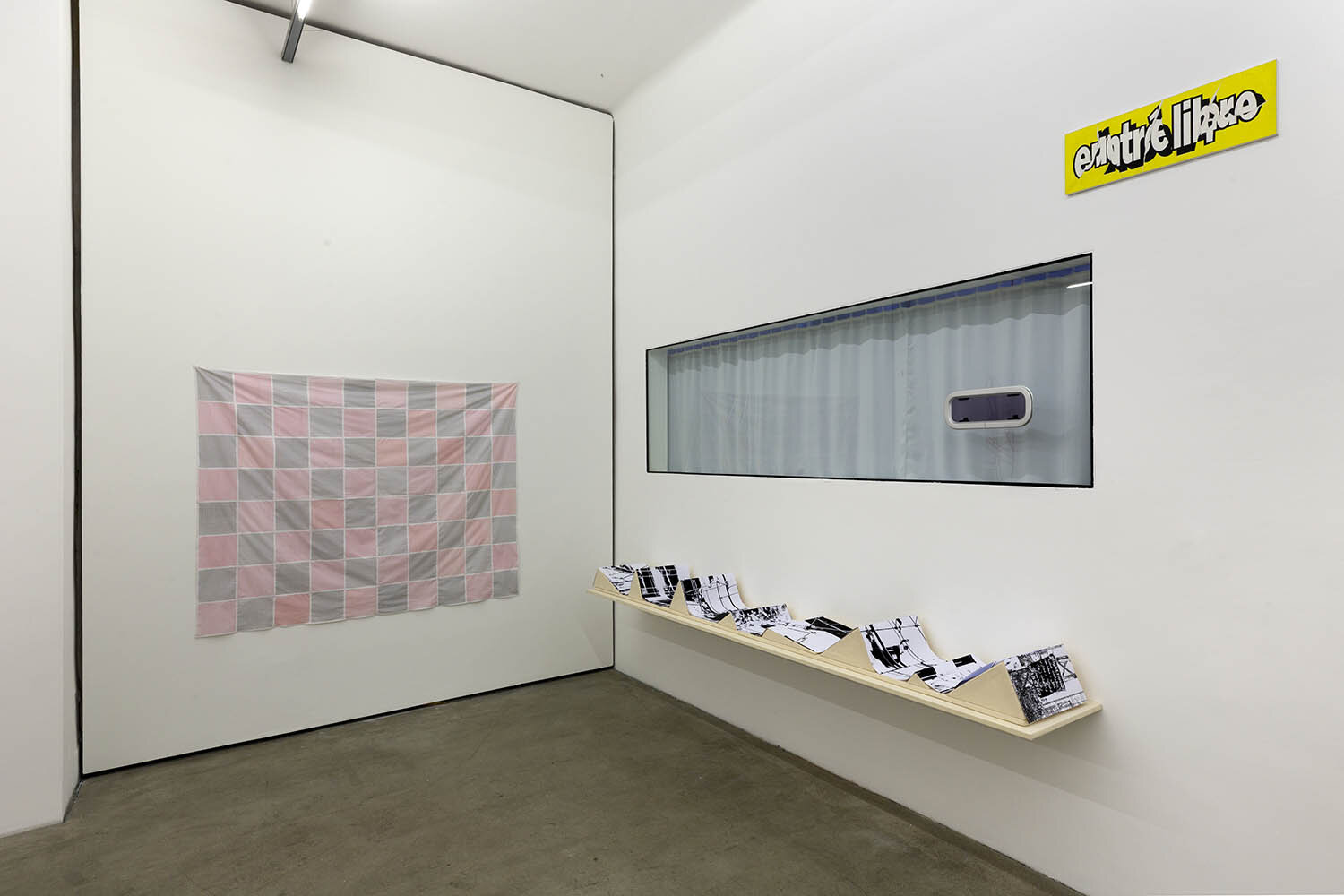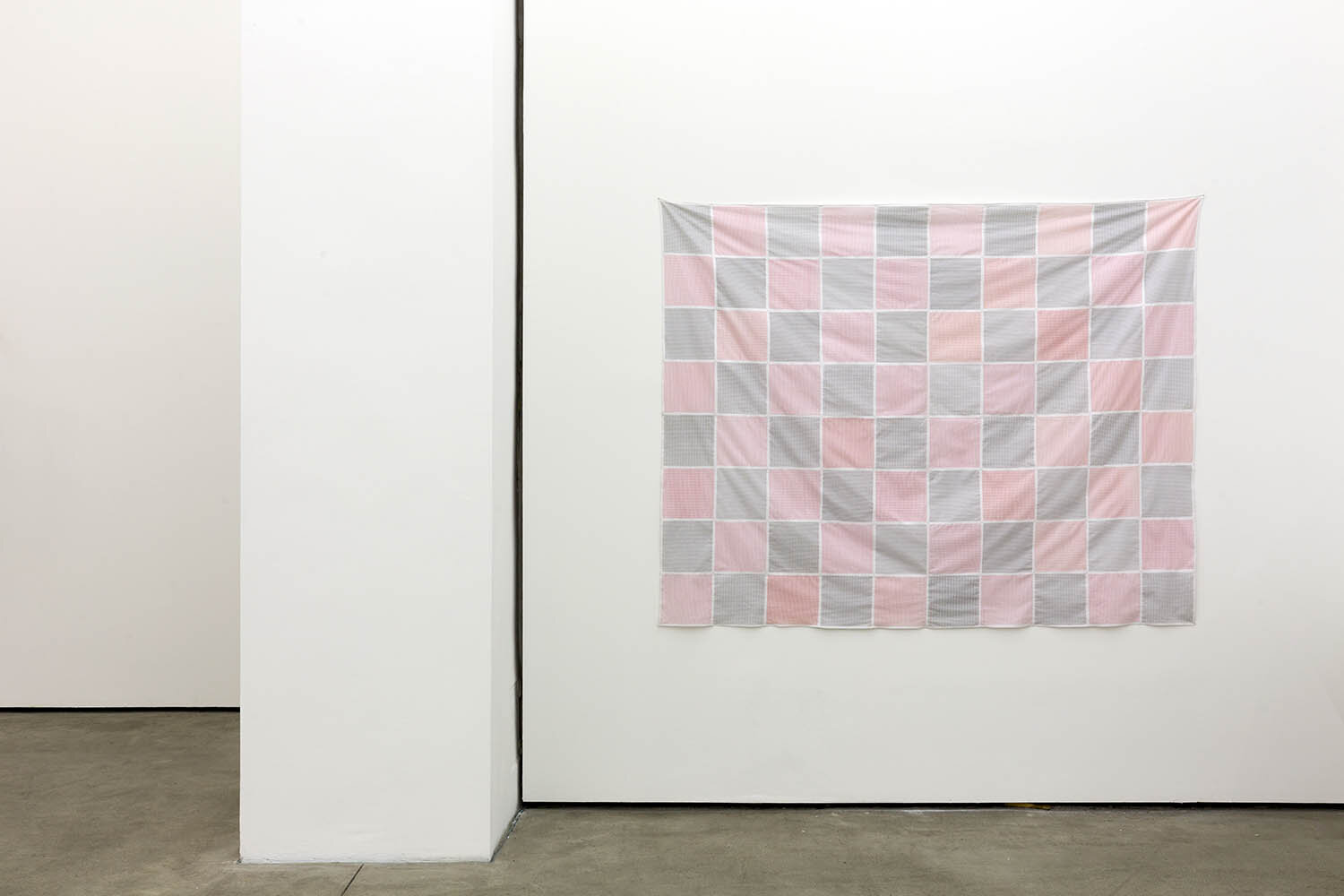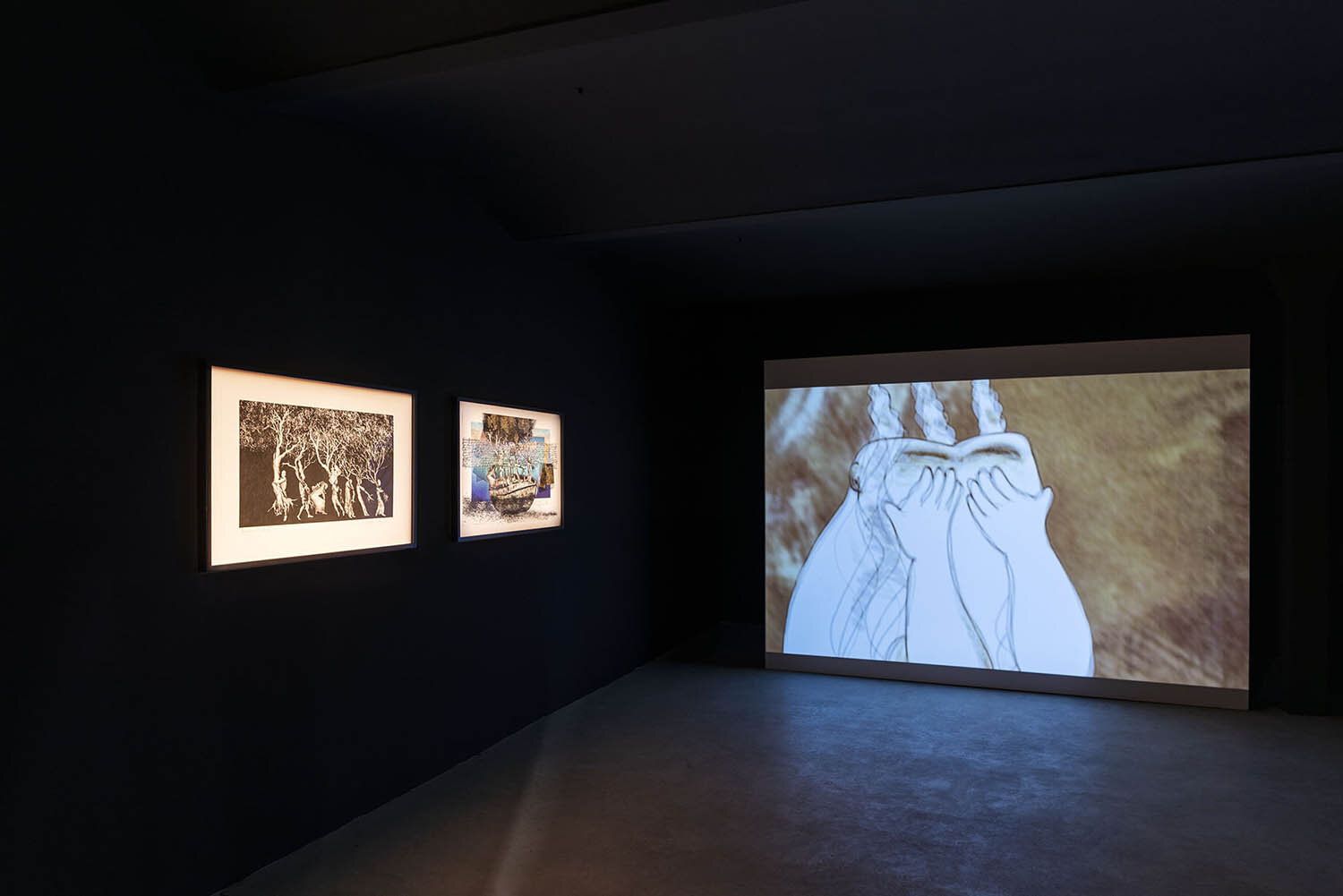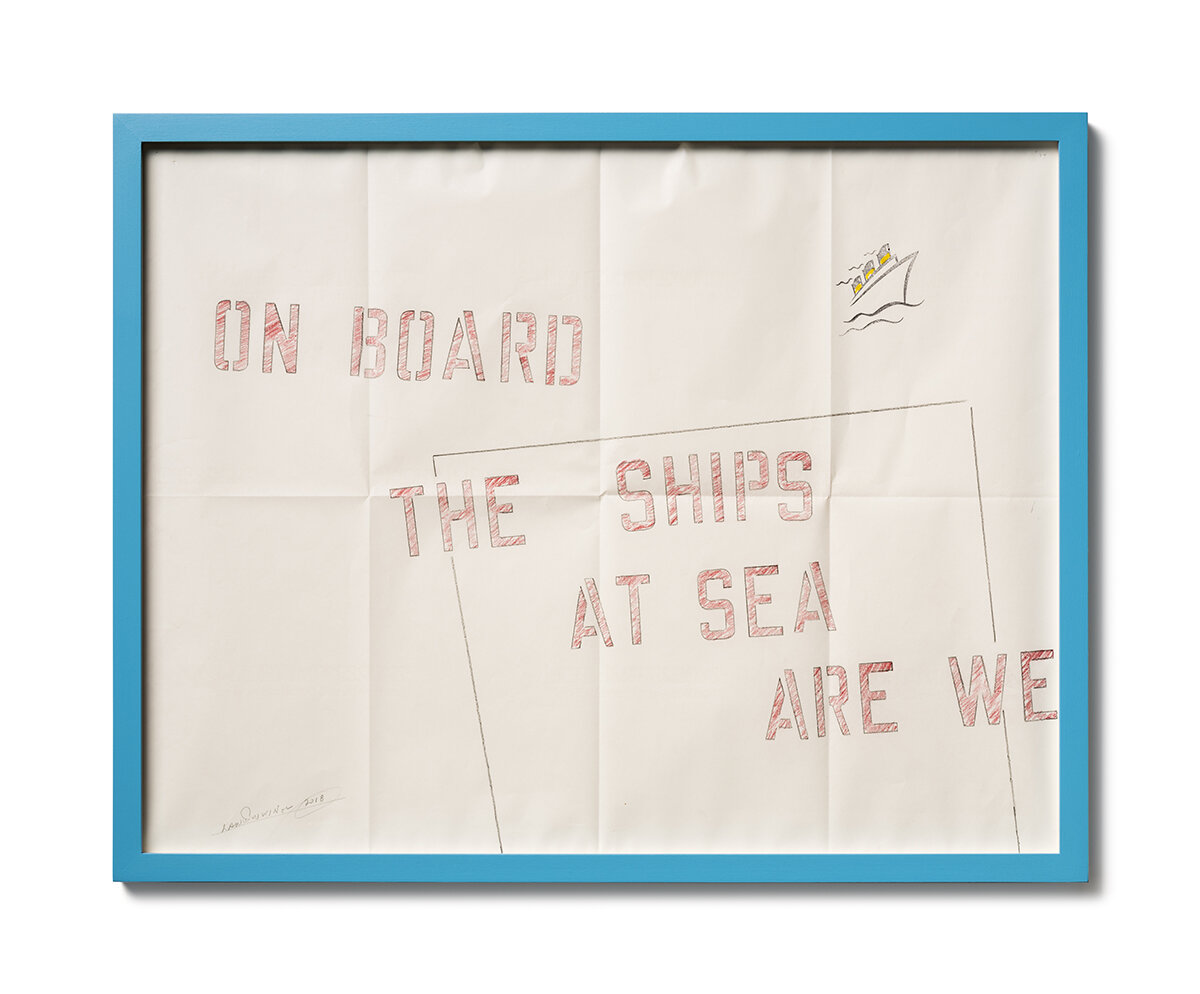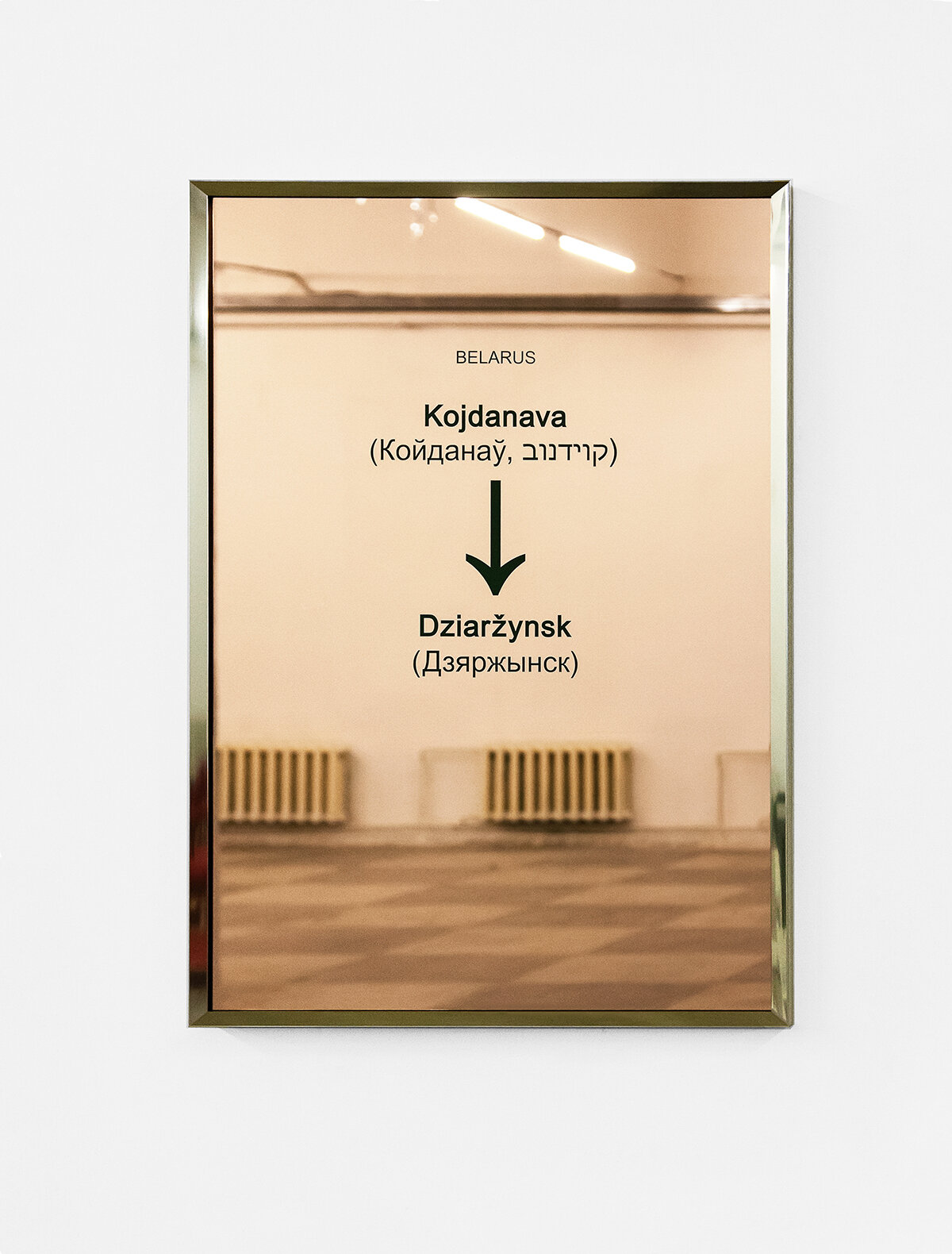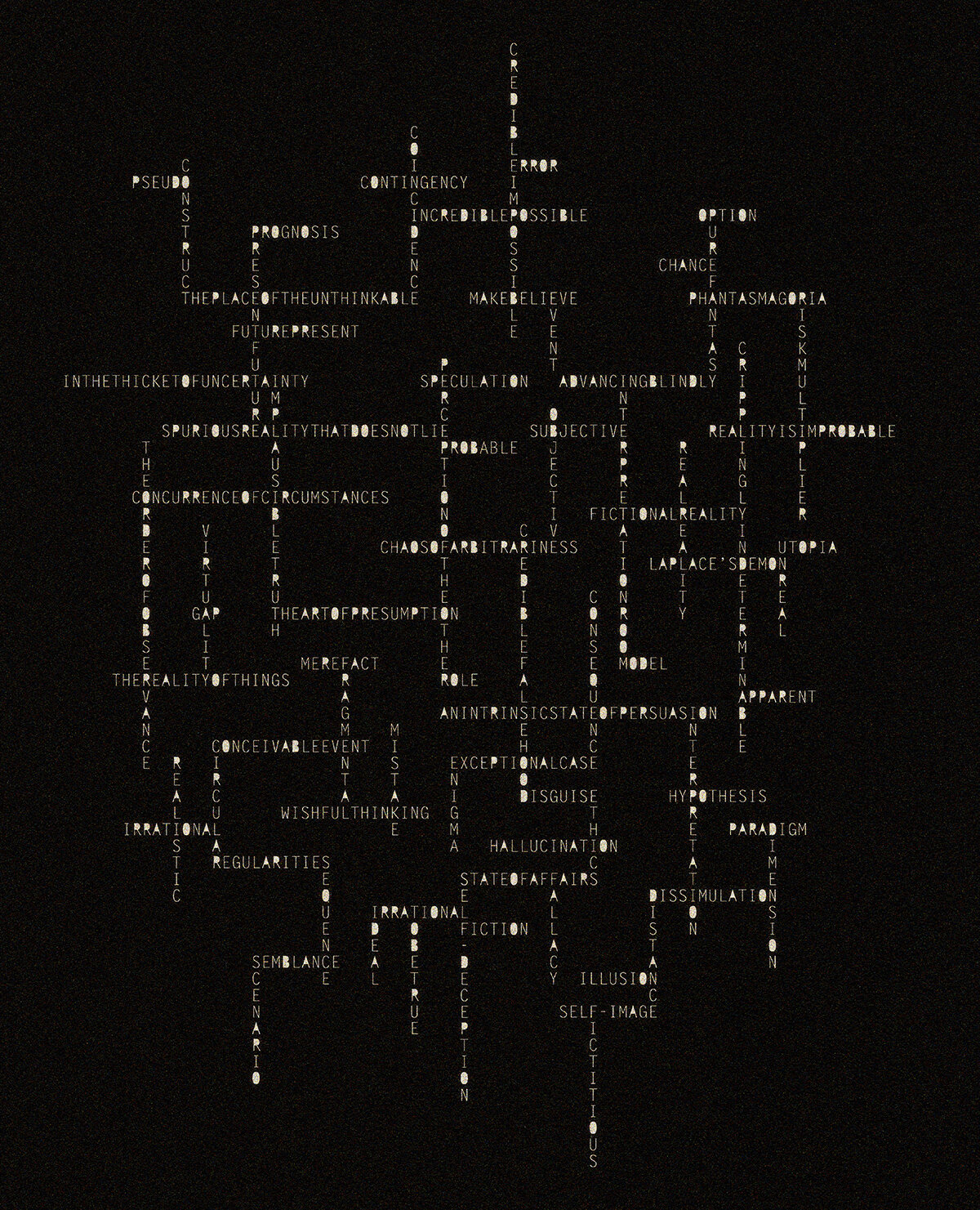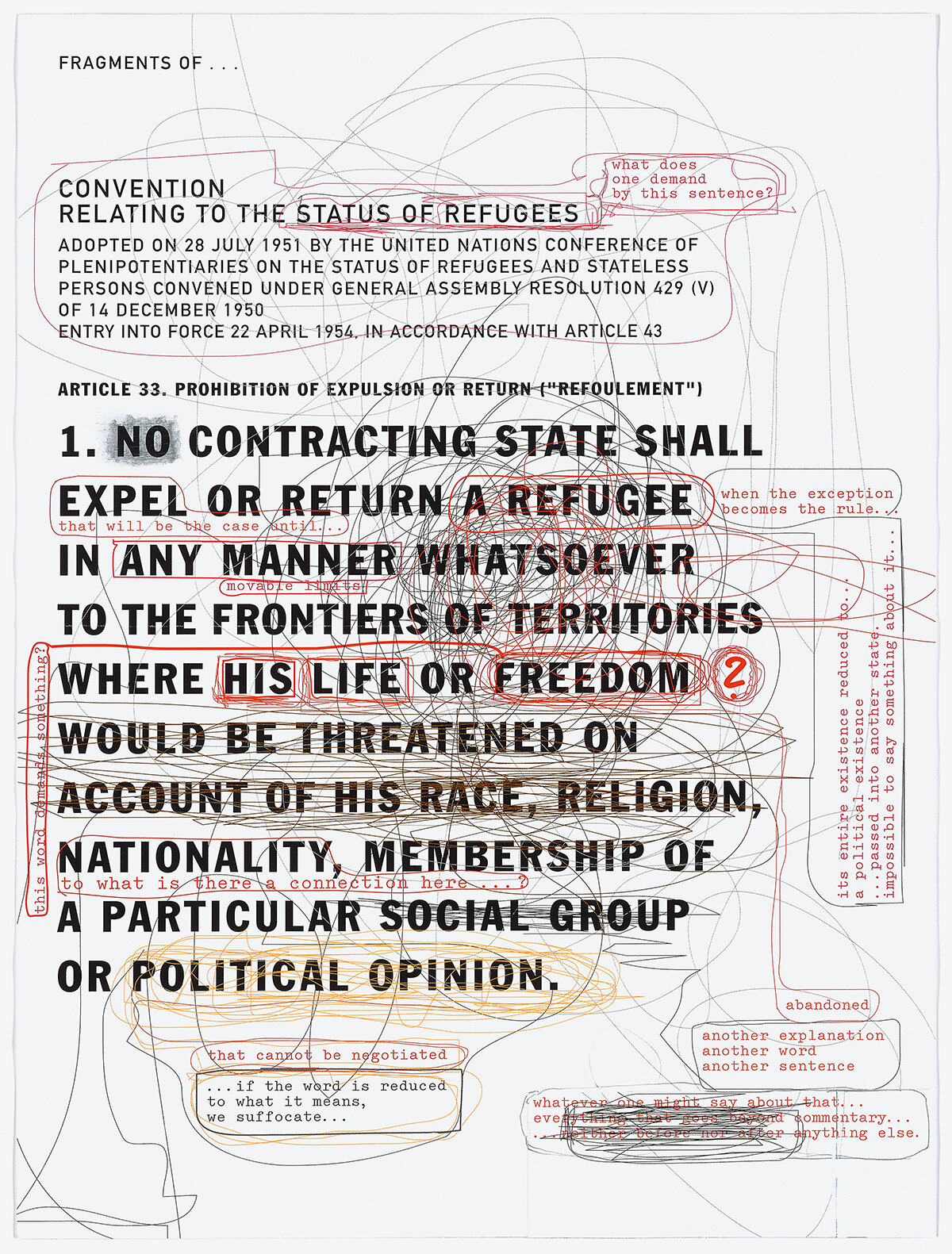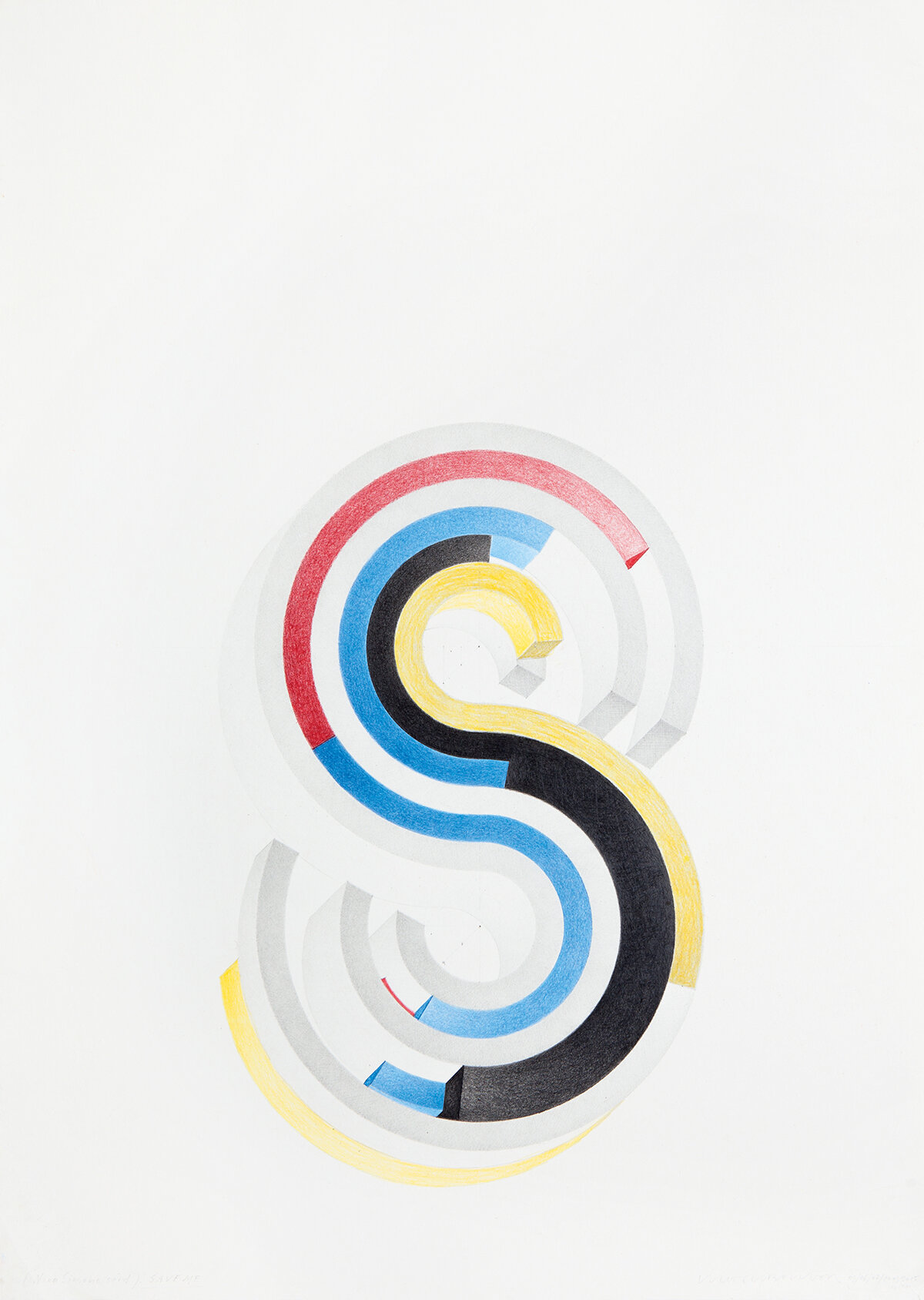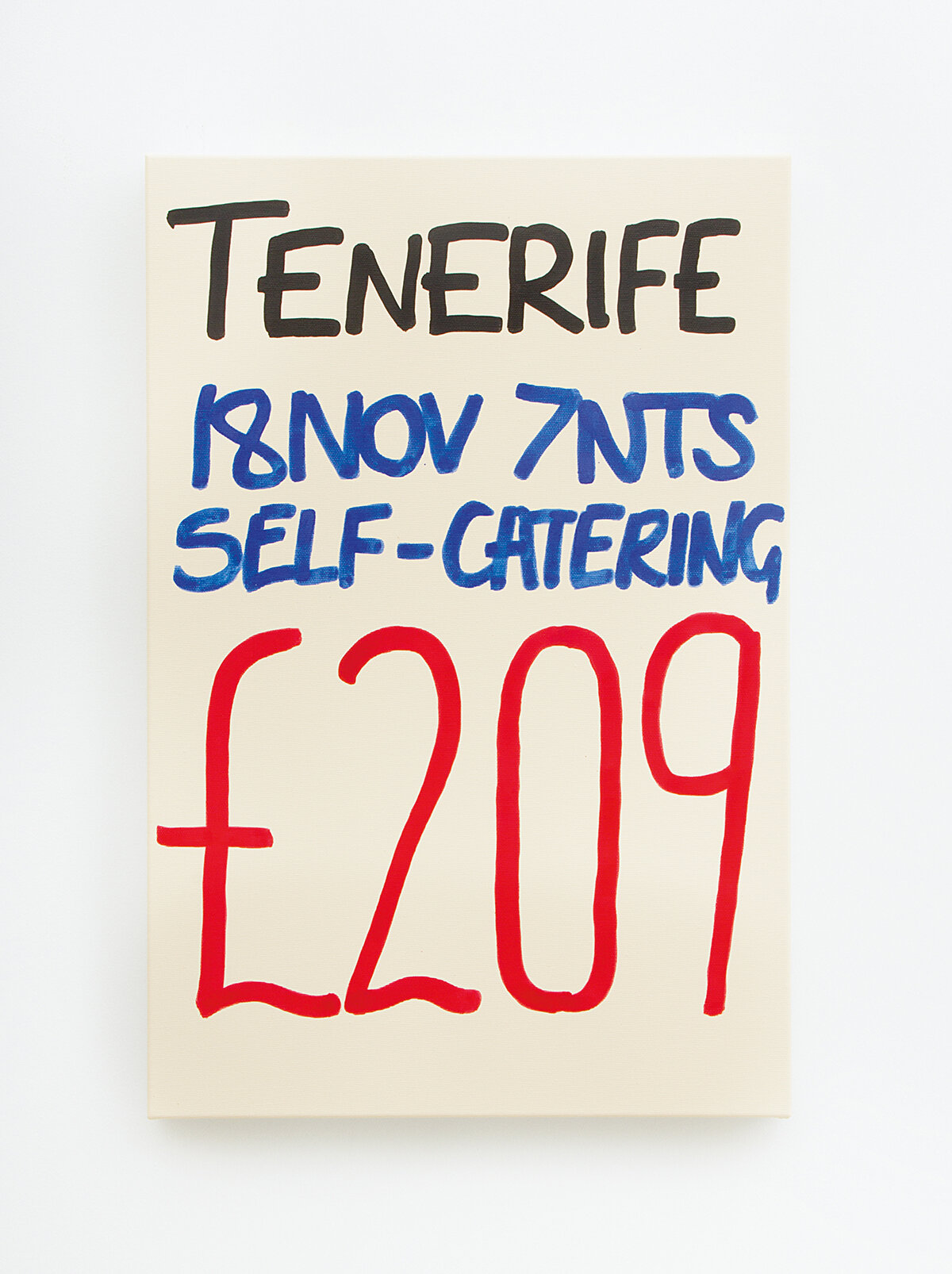Livia Alexander is a curator, writer, and Assistant Professor of Global Visual Cultures at Montclair State University. Her work is focused on examining the relationship between art infrastructure and artistic production, urbanity, cultural politics of food and art, and contemporary art from the Middle East and Southeast Asia. She is the co-founder of ArteEast, a non-profit organisation established in 2003 to support and promote artists from the Middle East, North Africa and its diasporas, which she directed until 2013.
Midia Amir is from Rojava, Syria. Her birthplace is the city of Aleppo in 1986. There she completed her studies in Geodesy. During this time, she was already involved in the social sector, among others with the Red Cross and the FPA (Family Planning Association/UN) in Syria. After her studies, she worked in customer consulting in various companies. Due to the beginning of the war in her home country her next stop was the city of Istanbul, Turkey, where from 2011 she worked as a translator. After coming to Austria, she learned the German language and in 2018 trained as an integration coach with a focus on intercultural competences.
Berivan Aslan was born in Turkey and is an Austrian lawyer and politician of “The Green Alternative”, a political party in Austria. Aslan was a member of the National Council from 2013 to 2017. She is considered an expert on human and women’s rights and migration issues. Berivan Aslan currently works as a University Assistant at the Institute for Austrian and European Business Criminal Law at the Vienna University of Economics and Business and is doing her doctorate there.
Khaled Barakeh is a Syrian artist and activist based in Berlin. His art often reflects different stages of his personal life, they are bound to undergo changes with the passage of time. Even thought, Barakeh’s methods shift and change over time, visual preferences and themes such as freedom, oppression and censorship remain present in his work. Barakeh seeks for the viewer to challenge expectations and pre-existing assumptions.
Ramesch Daha was born in Tehran, has been living in Vienna since 1978. In her multi-part work complexes, the artist works with a variety of media, including painting, collage, video and drawing, as well as documents from public and her personal archives. Based on extensive historical research, Daha, in her artistic work, connects biographical historical aspects, collective memories and historical-political events in new constellations. This involves extensive travelling and study visits to, among others, Vancouver, New York, London or Berlin. Daha has met broad international recognition with her yet uncompleted series Victims 9/11, in which she attempts to save the victims of the terrorist attack from oblivion by portraying every single one of them.
Özge Ejder is Associate Professor in the Department of Philosophy at Mimar Sinan Fine Arts University in Istanbul. She has teaching and research interests in the theory of art, architecture, aesthetics and continental philosophy with an emphasis on Husserlian and post-Husserlian phenomenology. She has published on the concepts of death, boredom, and representation. Her translation work includes Arthur Danto’s The Transfiguration of the Commonplace and she has edited a special issue on art and philosophy for MSGSU Social Sciences Institute Journal.
Sébastien de Ganay was born in France and studied at Columbia University in NY. Ganay is co- founder and partner of Onestar Press which is dedicated to the production of books and films by artists. Sébastien de Ganay is currently one of the most innovative representatives of experimental painting and sculpture. With his work, he moves within the field between art and design.
Stefan Fritz was born in Austria, he taught for several years at the University of Klagenfurt and the University of Innsbruck. Stefan Fritz was previously in charge of the finance department of Hilfswerk International from 2007 and has been Managing Director of Hilfswerk International since 2015. Hilfswerk International is a non-profit, non-partisan organisation which provides long term international development assistance as well as humanitarian aid for victims of conflicts and environmental disasters.
Lewis Johnson is a historian and theorist of art and visual cultures, based in Istanbul. He has published widely on art, in particular the pictorial arts, across modern cultures in Europe, North America, South Africa and Turkey, in books, catalogues and academic journals such as Double Dialogues and Third Text. He edited Mobility and Fantasy in Visual Culture (Routledge 2014), foregrounding issues of mobility, migration and cultural belonging from the Renaissance on. His work explores problematics of identity and culture as communicated and contested through art and media.
Barbara Coudenhove is a Czech-Austrian journalist. After working for several major Austrian newspapers, she became a renowned writer in the 1970s for a series of radio documentaries she made on Eastern Bloc countries, above all in Poland and Czechoslovakia. She received a national award from Václav Havel for her work supporting democracy and human rights. Nowadays she writes for several Czech and Austrian papers.
Kilian Kleinschmidt is an international networker, humanitarian and refugee expert with 30 years of experience in a wide range of countries, emergencies and refugee camps as United Nations official, Aid worker and Diplomat. He is the founder and Chairman of the startup Innovation and Planning Agency (IPA) which aims at connecting the millions of poor and disadvantaged with relevant and under-utilized resources and modern technologies of the 21st century through its project SWITXBOARD. He was known as the “Mayor of Za’atari” when he managed the refugee camp of Za’atari in Northern Jordan from 2013-2014 on behalf of UNHCR.
Fiona Liewehr is an art historian, curator and writer/editor based in Vienna. Her experience is based on both an institutional background and the art market. She worked for the Belvedere, Vienna and the MUMOK Museum of Modern Art Vienna as well as a gallery director of Georg Kargl Fine Arts. In her curatorial practice, Liewehr is concerned with the crossover of media and disciplines such as theatre, music, film and architecture and the phenomenology of perception and expanded forms of spatial existence as the result of social relations.
Sulaiman Al Mahmoud is a Kurdish Cultural Manager from Syria based in Vienna since 2014. Mahmoud studied English Literature at the Al-Baath University in Syria. He is founding director of the Kurdish Cultural Institute of Vienna and works to promote Kurdish language and culture in Austria. Mahmoud is interested in Diaspora Studies and Linguistics.
Isin Önol (1977 Turkey) is a curator and writer based in Vienna and New York. Her curatorial research primarily focuses on archives and oral histories to interconnect personal histories and collective memories as alternative histories to official narratives. She currently teaches at Montclair State University’s department of Arts & Design. She is a member of the Center for the Study of Social Difference at Columbia University, the founding coordinator of Nesin Art Village, and currently a member of the board of directors at Roberto Cimetta Fund.
Golnar Shahyar is a European based Iranian/Canadian vocalist, composer, lyricist and music educator who specialises in combining her musical roots with jazz and improvised music. After getting her bachelor degree in Biology in Toronto, Canada, she moved to Vienna in 2008 to pursue her dream of becoming a musician. Within a short period of time, she entered the international stages and festivals while finishing her studies in voice performance and music education, minoring guitar performance, at the University of Music and Performing Arts Vienna.
Thomas Schmidinger is a political scientist and Cultural Anthropologist based at the University of Vienna. He is co-founder and Secretary General of the Austrian Association for Kurdish studies. He is the author of Rojava (Pluto, 2018), which received the Mezlum Bagok award. He has written extensively on Kurdistan, Sudan, Kosovo, Jihadism, migration and Muslim communities in Europe. He is a board member of the Interessengemeinschaft LektorInnen und WissensarbeiterInnen, a platform for the preservation of policy concerns of lecturers and knowledge workers.
Nil Yalter, a Turkish-French artist, is considered as a pioneer of socially engaged art. Born 1938
in Cairo, she grew up in Istanbul. In 1965 she moved to Paris, where she expended her painting practice to multimedia installations dealing with migration, exile, the working class and the social position of women, all recurring themes throughout her carrier. She received the Outstanding Merit Award, PRIX AWARE 2018. Current museum exhibition: Nil Yalter. TRANS/HUMANCE. Musée d’Art Contemporain du Val der Marne (MAC/VAL), Vitry-sur-Seine, France. Recent exhibitions: Nil Yalter. EXILE IS A HARD JOB at Museum Ludwig, Cologne, Germany and Hessel Museum of Art, CCS Bard, Annandale-On-Hudson, NY, USA; 2016 FRAC Lorraine, Metz, France and “OFF THE RECORD”, ARTER – Space of Art, Istanbul, Turkey.
Samar Yazbek is a Syrian writer and journalist. Yazbek took part in the popular uprising against
the Assad regime, and was forced to exile months later. She participated in the “Women’s Initiative Organization”, dedicated to the defence of women’s and children’s rights. In 2013 her book “In the Crossfire” was awarded the Pen OXFAM Novib award in the Netherlands. In 2016, The Crossing” won “The Best Foreign Book” award in France. Her latest book “19 women: Tales of resilience from Syria” shares the stories of women who took part in the revolution but were silent or silenced actors.












